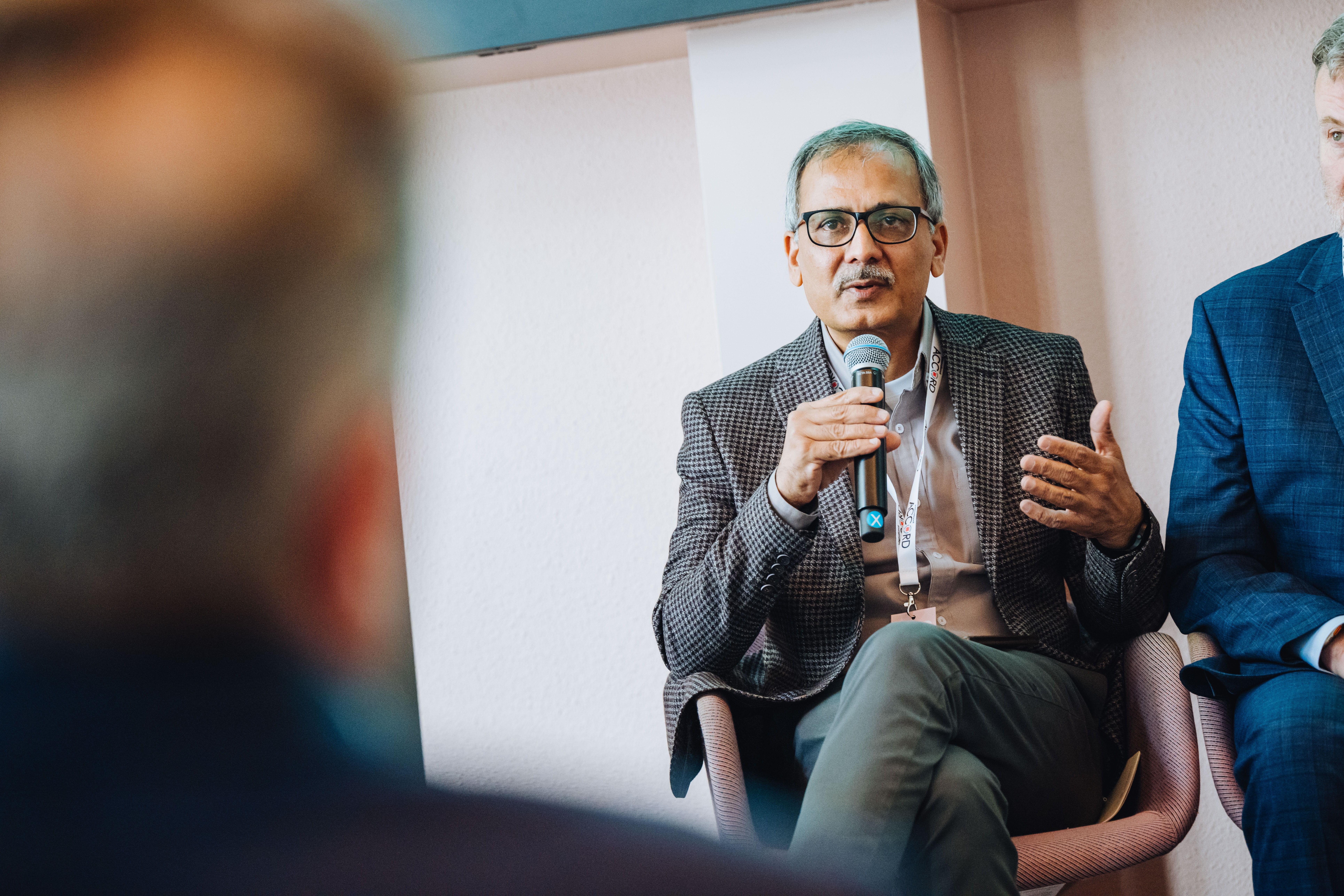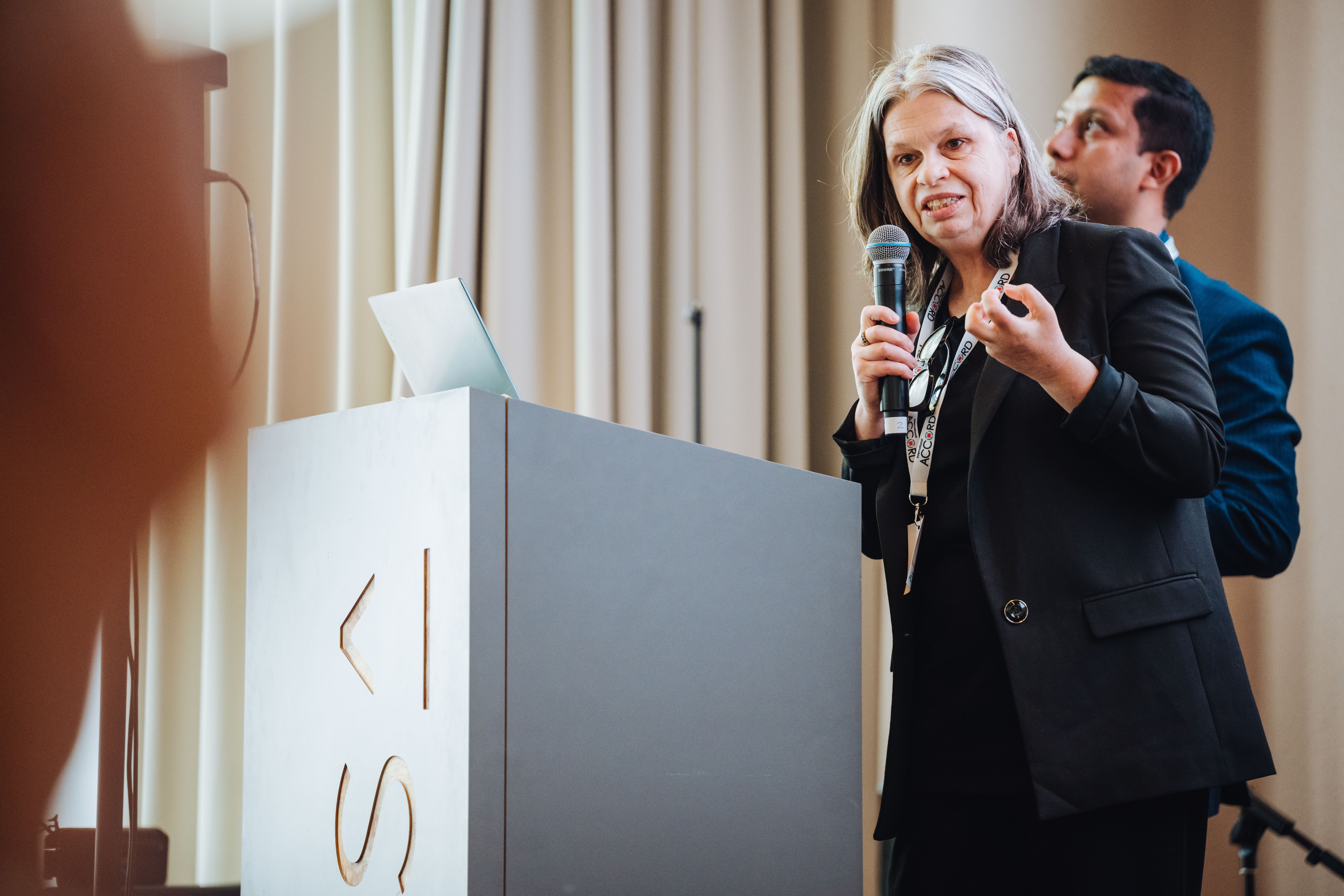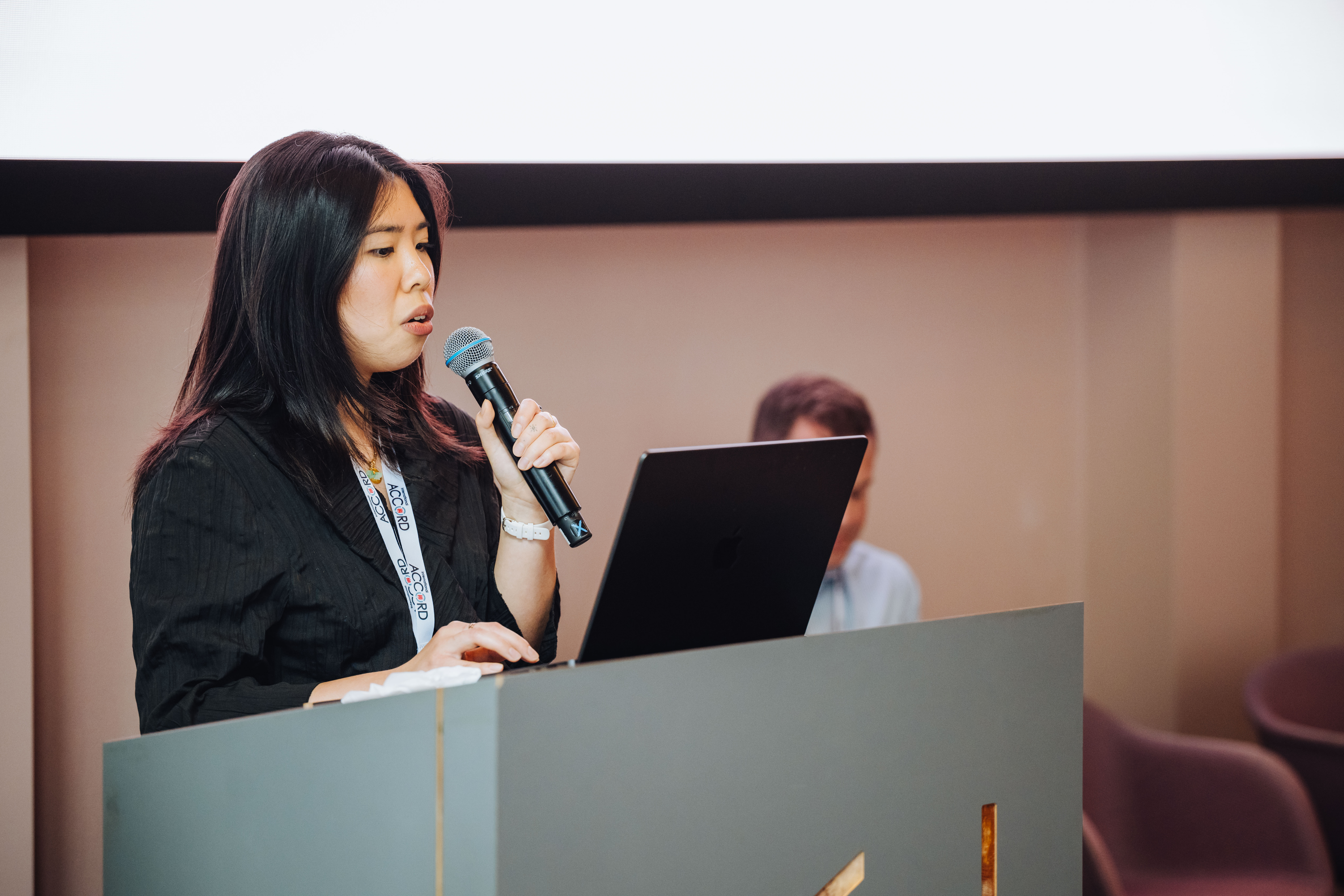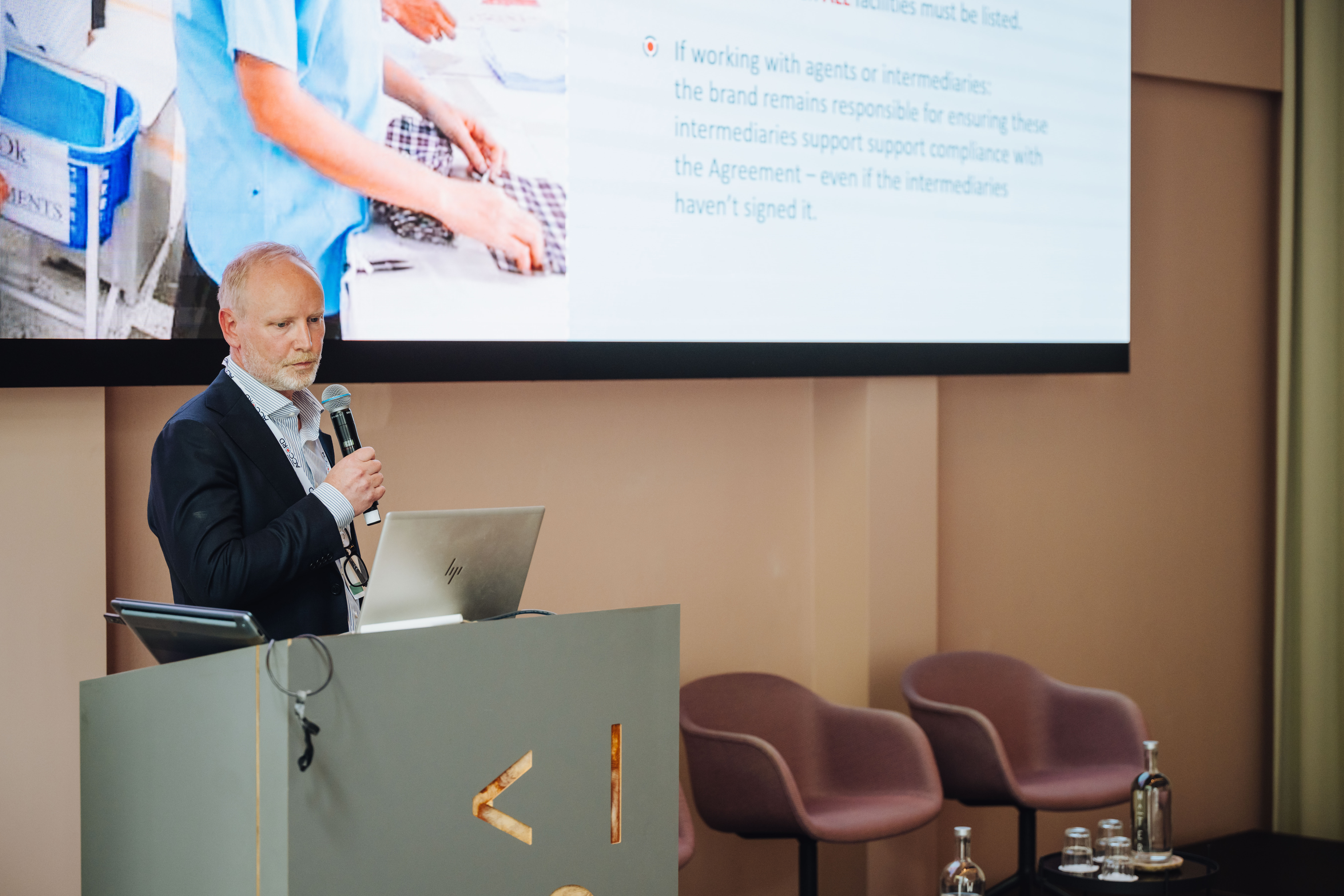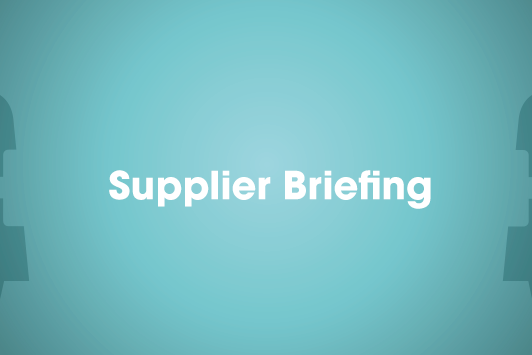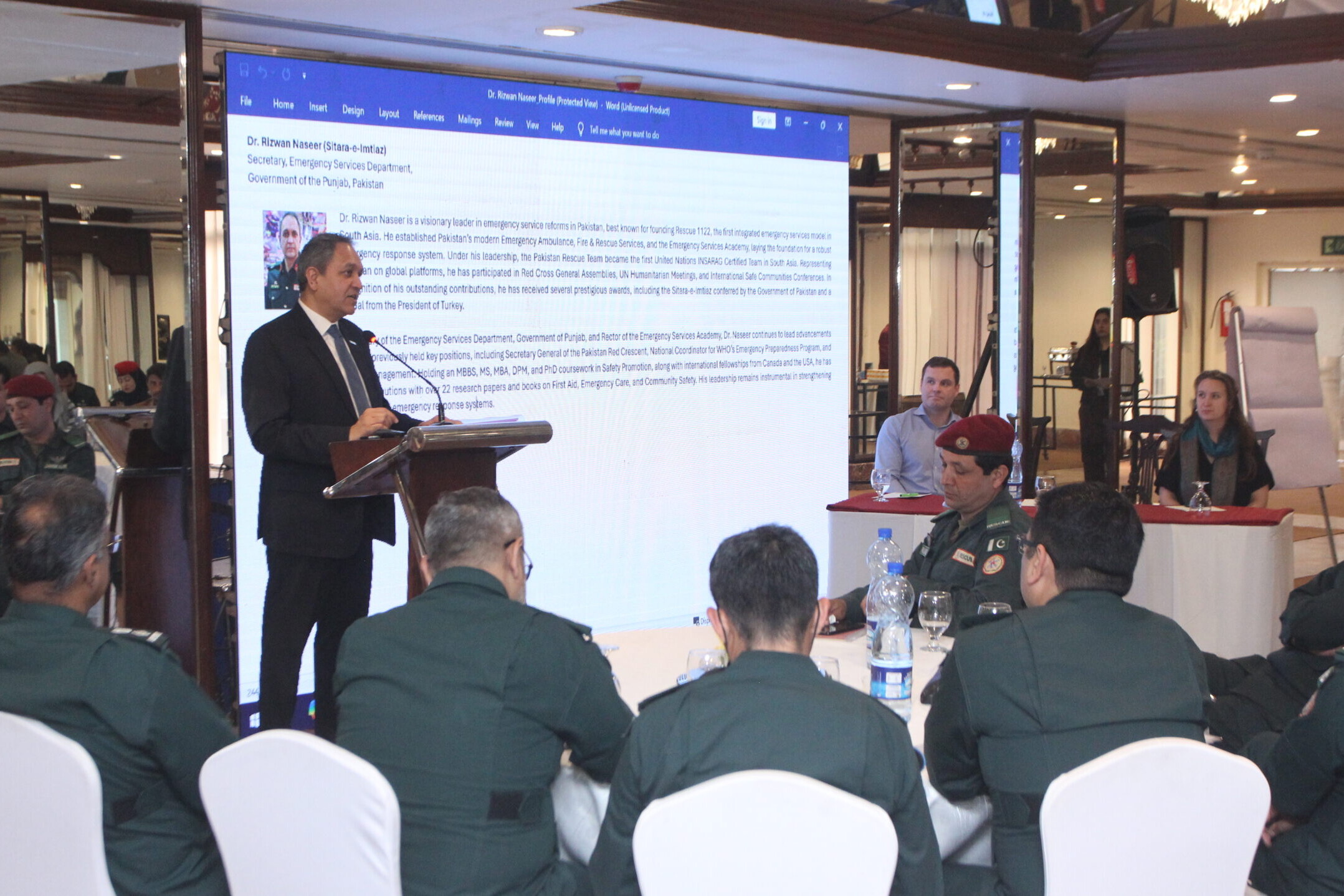Recap: Accord All Signatory Meeting 2025
Accord

The International Accord held its 2025 All Signatory Meeting on 21 May at Hotel Casa in Amsterdam, the Netherlands. The meeting offered valuable insights into the progress and operations of the Accord’s Country-Specific Safety Programs (CSSPs) in Bangladesh and Pakistan, while exploring future opportunities for expanding the Accord’s scope and impact.
The event brought together over 120 participants from key stakeholder groups, including brand, trade union, and NGO signatories. It also welcomed colleagues from the RMG Sustainability Council (RSC) and the Pakistan Accord Secretariat.
The day commenced with opening remarks from Joris Oldenziel, Executive Director of the International Accord. He welcomed attendees and reflected on the broader socio-political and legislative developments affecting the global textile and garment industry.
Oldenziel noted that, despite ongoing global challenges, the Accord continues to gain momentum. He highlighted that the International Accord and its Bangladesh country program have reached a historic milestone—achieving the highest number of signatories to date.

Updates on the Pakistan Accord
Zulfiqar Shah, Country Director of the Pakistan Accord, and Paul Rigby, Chief Safety Officer (CSO), shared insights on the Pakistan Accord’s implementation. They outlined the growing coverage of signatories, factories, and workers under the country program. Shah highlighted the encouraging reception from factories for the worker safety training sessions, as well as the positive feedback received on the government capacity-building program.
Rigby provided detailed updates on the factory remediation work underway in Pakistan, including the fire, electrical and structural safety issues at covered factories since the start of inspections in October 2023. He noted overstressed structural columns and a lack of access to safe egress for workers as common safety issues requiring remediation.
He further highlighted the ongoing knowledge exchange and collaboration between the engineers from the Pakistan and Bangladesh teams.
Rigby underscored the importance of engagement between brands, retailers and suppliers. He urged brands and retailers to be closely involved in the inspection and remediation process, stressing that proactive collaboration enables more effective risk identification, accelerates remediation timelines, and fosters stronger relationships with factories.
Updates on the Bangladesh Safety Agreement
Abdul Haque, Managing Director of RSC, along with Shah Sefat Uddin Ahmed, Senior Head of the Remediation Program, and MD Hassan Nawazis, Chief Safety Officer (CSO), shared updates and insights into the ongoing health and safety efforts under the Bangladesh Safety Agreement.
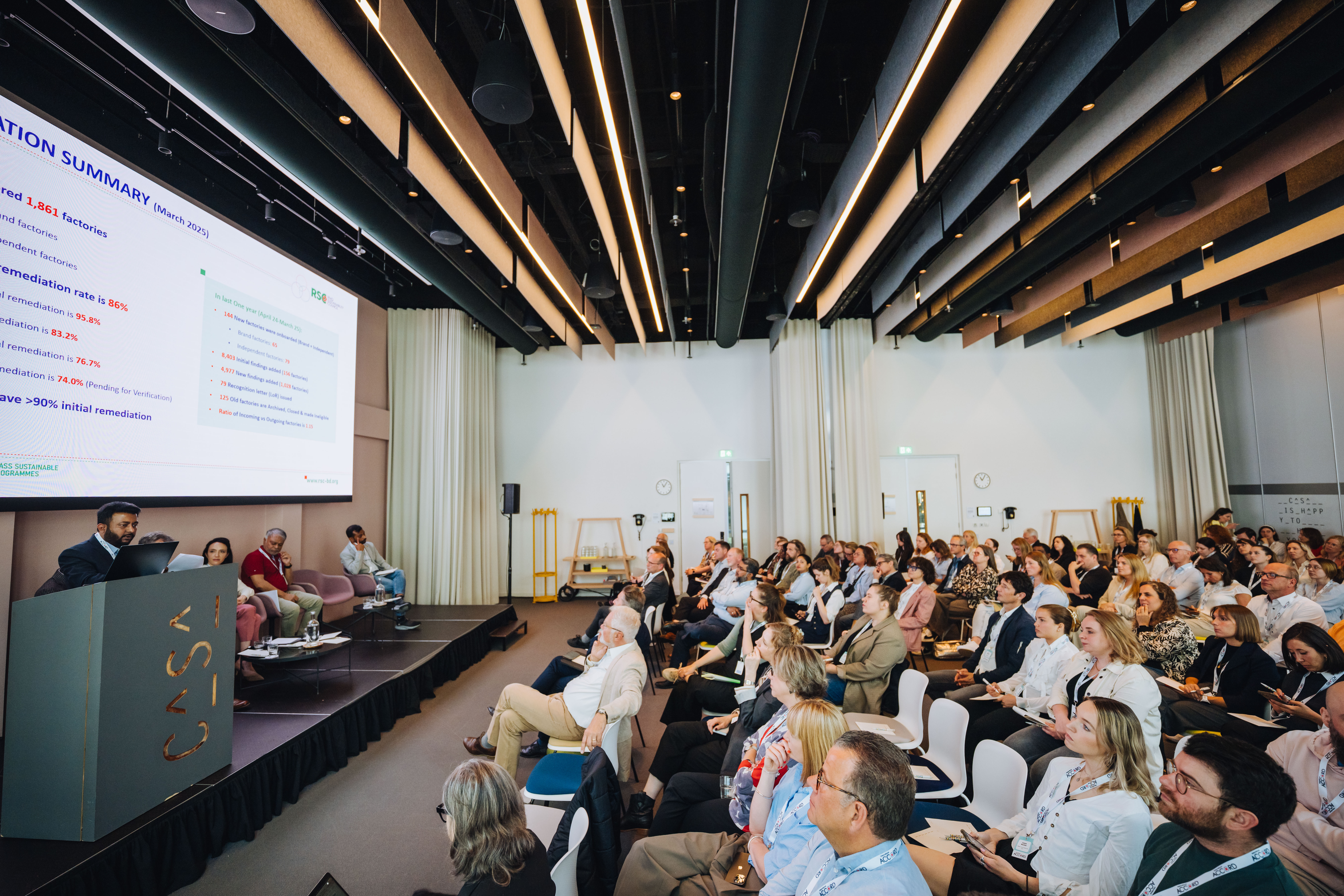
The team outlined several key measures aimed at strengthening remediation efforts at covered factories in Bangladesh. These include:
- Capacity-building workshops for factories and service providers
- Clear communication of remediation requirements following inspections
- Introduction of Stage 1 meetings to address non-compliances promptly
Updates included progress on inspection scopes at covered factories and the expansion of the Occupational Safety and Health (OSH) Complaints Mechanism, and the planned digitalisation to streamline organisational processes.
Perspectives on the Complaints Mechanism
Kirstine Drew, Chief Complaints Officer for the Pakistan Accord, and Ovijit Mutsuddi, Head of the Occupational Safety and Health (OSH) Complaints Mechanism Department at the RSC, presented comparative insights from Bangladesh and Pakistan on the Accord’s Complaints Mechanism.
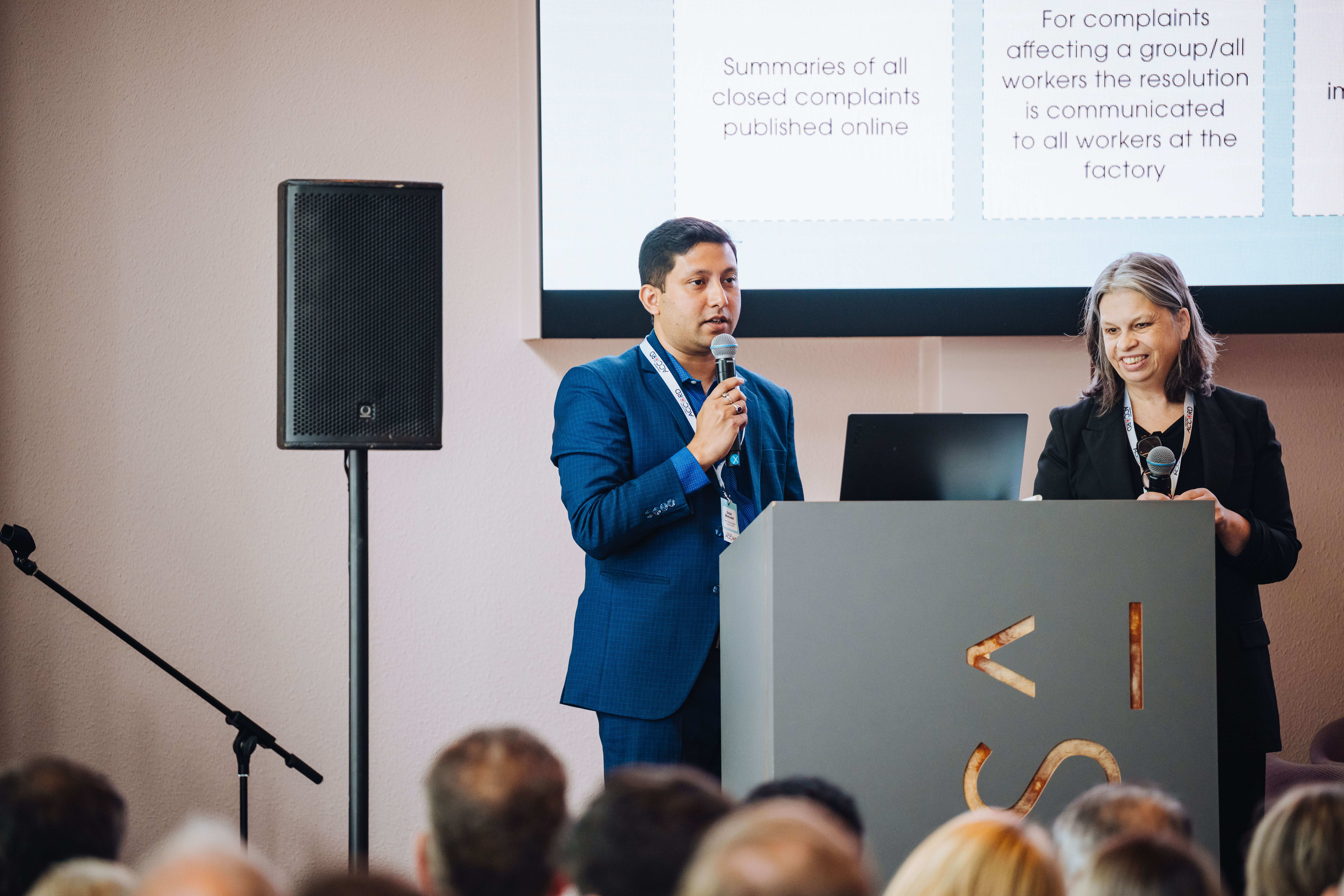
- Drew and Mutsuddi emphasised the core principles that define the Accord’s Complaints Mechanism—accessibility, legitimacy, confidentiality, enforceability and transparency. They also emphasised the dual role of a complaints mechanism – providing access to remedy for workers as well as information that brands and retailers can use to identify and prevent adverse impacts as part of their HRDD. They provided perspectives on both roles.
- They discussed the nature of complaints received and highlighted the differences between Bangladesh’s more mature system and the relatively nascent system in Pakistan. They also provided a breakdown of OSH versus non-OSH complaints, noting that the Accord’s Mechanism currently covers OSH-related issues.
- Mutsuddi shared data and analysis from Bangladesh. Common OSH-related complaints include maternity rights violations, workplace violence, sickness, and forced overtime. While non-OSH complains often involve issues such as wages, benefits and leave entitlements, and unfair terminations.
- Drew offered early-stage observations from the Pakistan Accord, describing a nascent system, with a smaller data set and a more dynamic and fluctuating distribution of complaints. OSH-related issues in Pakistan include forced overtime, workplace injuries, lack of drinking water, and insufficient personal protective equipment (PPE). Non-OSH complaints typically involve non-payment of wages and overtime, especially for contract workers.
A dynamic Q&A session followed, featuring insights from Lena Peleikis, Head of Human Rights & Responsible Supply Chain at the Otto Group, and Christina Hajagos-Clausen, Director of the Textile and Garment Industry at IndustriALL. They discussed the strategic role brands and trade unions can play in strengthening the Mechanism.
The session explored the potential for expanding the scope of the Complaints Mechanism beyond OSH. It also provided suggestions on how brands and retailers can more effectively collaborate in using the data from the Accord Complaints Mechanism for identifying risks and preventing adverse impacts, including by using the structures of the Accord.
Rotating Breakout Sessions
Following the lunch break, smaller participant groups engaged in three rotating breakout sessions:
- Launch of the Accord Signatory Portal: Led by Adelia Arista (Data Analysis & Systems Coordinator) and Colm Quinn (Head of Operations), this session introduced the new internal portal designed for Pakistan Accord signatories as part of the Accord’s broader digital transition. Arista demonstrated key functionalities of the portal and explained how it streamlines access to information about factory progress in Pakistan for signatories.
- Factory Disclosure under the Accord: Facilitated by Koen Oosterom (Head of Signatory Engagement), this session focused on the factory disclosure process under the Accord. Oosterom outlined the requirements and process for signatories to list factories under the Accord, emphasising its central role in ensuring supply chain transparency and accountability.
- External Session by ILO: Employment Injury Scheme Pilot in Bangladesh: Hosted by Dr. Anne Marie La Rosa (ILO), this session explored ILO’s Employment Injury Scheme Pilot in Bangladesh. Dr. La Rosa presented the business case for responsible supply chains, highlighting how the pilot supports worker protections and improves supply chain monitoring for brands.
Accord Expansion, Pakistan Accord Renewal and Brand Caucus
Following the breakout sessions, Oldenziel presented insights into the expansion of the Accord to other countries. The session provided an opportunity for signatories to discuss their interest in expanding the Accord’s work, informed by key findings from a brand survey conducted in March 2025.
The survey results included details on major sourcing countries, the types of supplier facilities involved and priority countries for potential expansion.
In recognition of the need for continued work in Pakistan, brands and trade unions engaged in a discussion around the upcoming negotiations and renewal of the Pakistan Accord. The session focused on the key considerations necessary to ensure the continuity and further strengthening of the Accord’s commitments in Pakistan.
On 22 May, Accord signatory brands convened a Brand Caucus to discuss important topics among peers. Discussions covered the renewal of the Pakistan Accord, the potential expansion of the Complaints Mechanism to address non-OSH grievances, and the Accord’s expansion to other countries.
We extend our sincere thanks to all attendees for their openness, insights, and recommendations, which are critical to effectively implementing the Accord’s programs and contributing to a safer and more responsible garment and textile industry. We also thank our moderator, Olivia Windham Stewart, and the Hotel Casa team for their invaluable organisational support in making this event possible.
For more information, contact:
- media@internationalaccord.org
- Mini Dixit, Communications Advisor: mini.dixit@internationalaccord.org
Related updates
May 28, 2025
The International Accord’s All Signatory Meeting was dedicated to insights on the progress and operations of the Accord’s country program in Bangladesh and Pakistan, alongside exploring opportunities to expand the Accord’s scope and impact.
March 10, 2025
This briefing provides updates on the number of signatory brands and covered factories, the rollout of Workplace Programs, and recent events organised by the Pakistan Accord team.
February 19, 2025
The Pakistan Accord team recently organised a series of capacity building workshops for government officials in the Sindh and Punjab provinces.
May 28, 2025
The International Accord’s All Signatory Meeting was dedicated to insights on the progress and operations of the Accord’s country program in Bangladesh and Pakistan, alongside exploring opportunities to expand the Accord’s scope and impact.
February 19, 2025
The Pakistan Accord team recently organised a series of capacity building workshops for government officials in the Sindh and Punjab provinces.
November 28, 2024
On 26 and 27 November 2024 the Pakistan Accord conducted its inaugural safety training meeting in Pakistan. The meeting was attended by all employees of the factory.
Pakistan Accord: Supplier Briefing #6
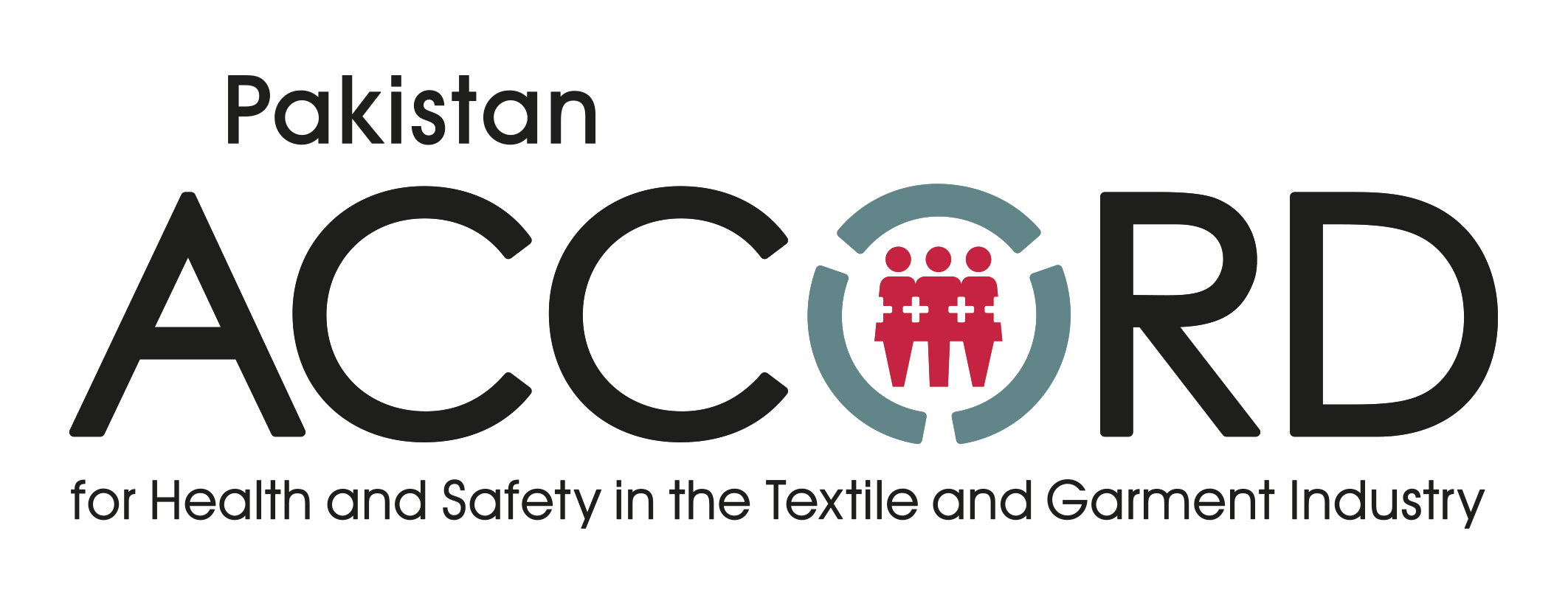
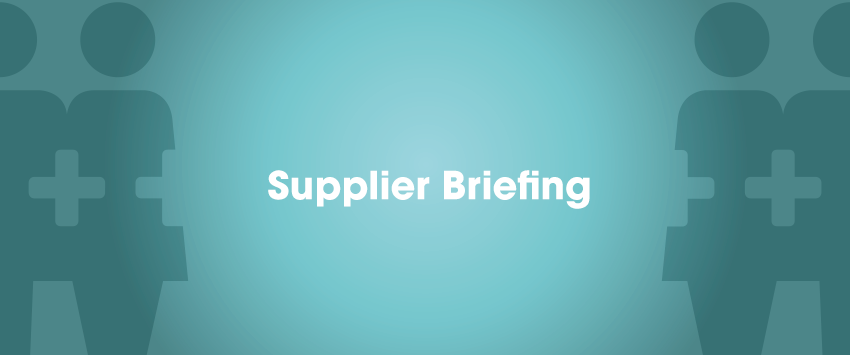
Supplier Briefing #6
These briefings are designed for all factories and suppliers listed by Pakistan Accord signatory brands. They include updates on key developments under the Pakistan Accord, along with information on upcoming events, guidance materials, and resources for suppliers.
We encourage all suppliers and factories covered by the Pakistan Accord to read these briefings and to share suggestions on what they would like to see in them by contacting us via pakistan.factories@internationalaccord.org.
This briefing includes updates on:
- Coverage: Signatory brands, factories and workers
- Program Rollout: Inspections and Remediation, Workplace Programs
- Key Events: Government capacity building sessions, technical workshops for service providers
- Implementation: Hiring update, vacancies
Number of Signatory Brands, Covered Factories and Workers
At the time of writing this briefing, 133 global brands sourcing textiles and garments from Pakistan have signed the Pakistan Accord and committed to working with their suppliers to ensure workplace health and safety. Since the last Briefing, new brands including Levi Strauss & Co., GearCo (Unrivaled Teamwear) and Lomotex GmbH & Co. KG have become signatories.
The Pakistan Accord signatory brands are headquartered in 18 countries across Europe, the USA, Australia, Hong Kong, Turkey and Japan, and include some of the world’s largest clothing brands and retailers. Collectively, these brands source approximately US$3.5 billion worth of goods from over 530 suppliers in Pakistan employing over 567,000 workers.
View the latest list of Pakistan Accord signatories.
View the list of factories participating in the Pakistan Accord programs.
Program Rollout
Inspections and Remediation
Over 200 factories across Karachi, Lahore, and Faisalabad have been inspected for fire, electrical, and structural safety. All inspections follow the Pakistan Accord Building Standard to identify risks and improve safety in Pakistan’s textile and garment industry. Inspections will include the identification of risks linked to hazardous materials at a later stage.
Start of Boiler Safety Inspections
The Pakistan Accord boiler safety team is now fully trained and has conducted seven visual inspections. All factories inspected for boiler safety receive a form to provide details on the quantity and types of boilers at their facilities, ensuring a comprehensive approach to these inspections.
In November 2024, the safety compliance consultancy TUV SUD conducted a week-long training program in Sri Lanka for the Pakistan Accord boiler safety team. As a follow-up, these engineers visited the RMG Sustainability Council (RSC) boiler safety team in Bangladesh for a knowledge exchange session and participated in factory inspections for hands-on training.

Boiler safety engineers from the Pakistan Accord team and the RMG Sustainability Council (RSC) participating in a training session in Sri Lanka.
Inspection Reports and CAPs
The International Accord Secretariat published the first set of Corrective Action Plans (CAPs) and initial inspection reports on fire, electrical, and structural safety for 30 factories under the Pakistan Accord on Friday, 21 February 2025.
These reports reflect the safety findings and progress at the inspected factories and are published in accordance with the transparency commitments under the Accord (Section IV, Article 29b of the International Accord, and Section IX, Article 23b of the Pakistan Accord).
The Accord is currently developing a factory search tool to showcase the progress at covered factories in Pakistan. In the meantime, the reports are temporarily available here.
Common Safety Findings and Remediation
To date, safety inspections have so far identified over 5,500 safety risks, including approximately 2400 findings on electrical safety, 2200 on fire safety, and 900 on structural safety. Below is an overview of the main findings under each safety inspection scope, along with remediation actions factories are taking to improve safety at their facilities.
Electrical Safety
Common findings
Pakistan Accord engineers identified electrical safety as the top risk in inspected factories, with over 2,400 risks. About 1,021 involve distribution boards and protection systems, commonly affected by hot spots from overloading, incorrect cable sizing, and poor installation—issues often missed due to a lack of thermographic testing. Many factories also have incomplete or missing electrical Single Line Diagrams (SLDs).
Remediation
Factories are training electrical staff, implementing thermographic testing for early fault detection, updating SLDs for better troubleshooting, and minimising combustible materials near electrical panels to reduce fire risks.
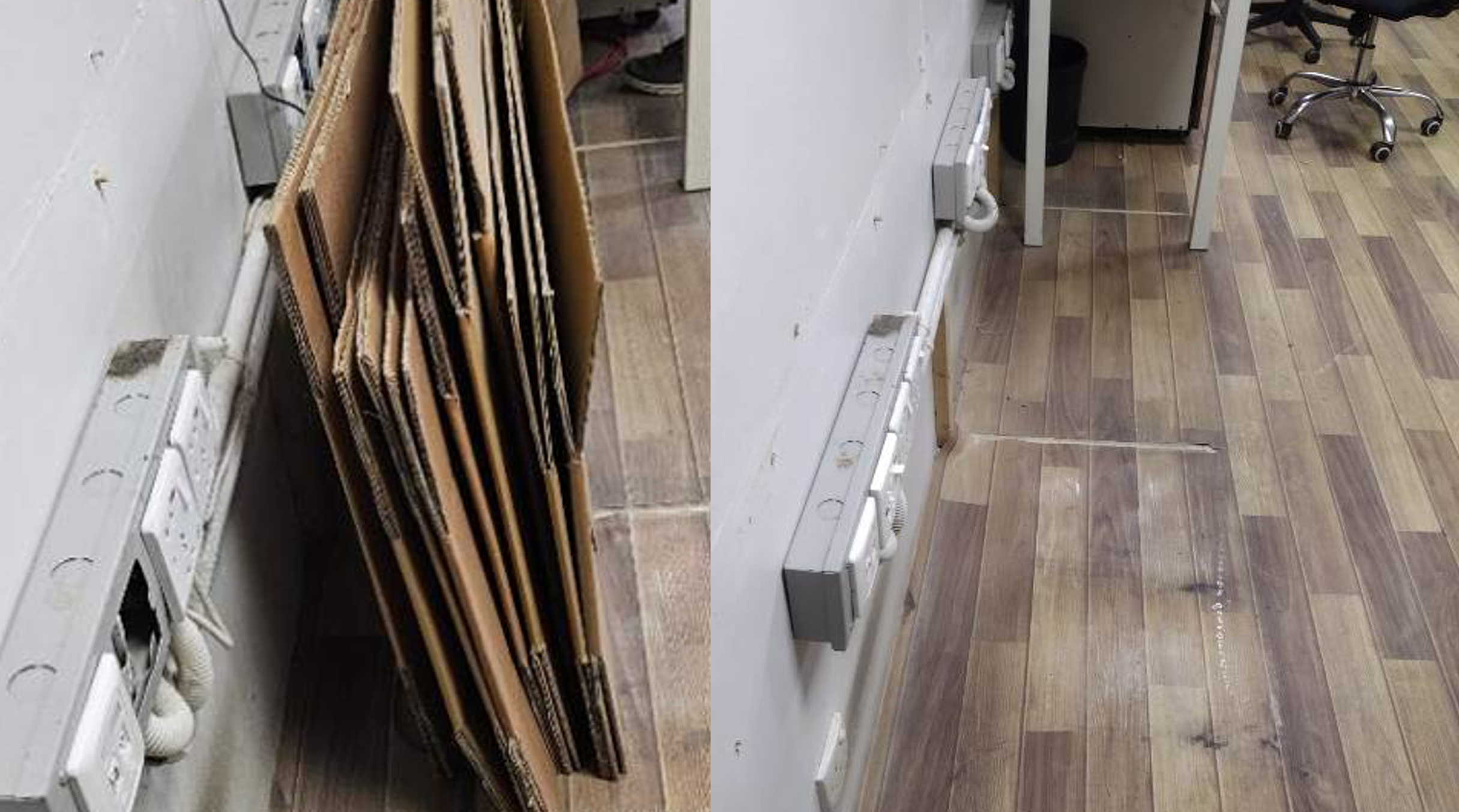
Left – Before: Combustible material near electrical panel; Right – After: Combustible material removed
Fire Safety
Common findings
Among 2,200 fire safety risks in inspected factories, 986 involve unsafe escape routes. Non-compliance includes locked doors or doors opening against escape routes, hindering evacuation. Many factories also lack handrails on exit routes, increasing risk during emergencies.
Remediation
According to the Pakistan Accord Building Standard, compliant escape doors should be free of locking devices, and swing open in the direction of an escape route. In addition, factories are installing handrails to ensure safe egress and help workers safely exit in case of fire safety accidents.
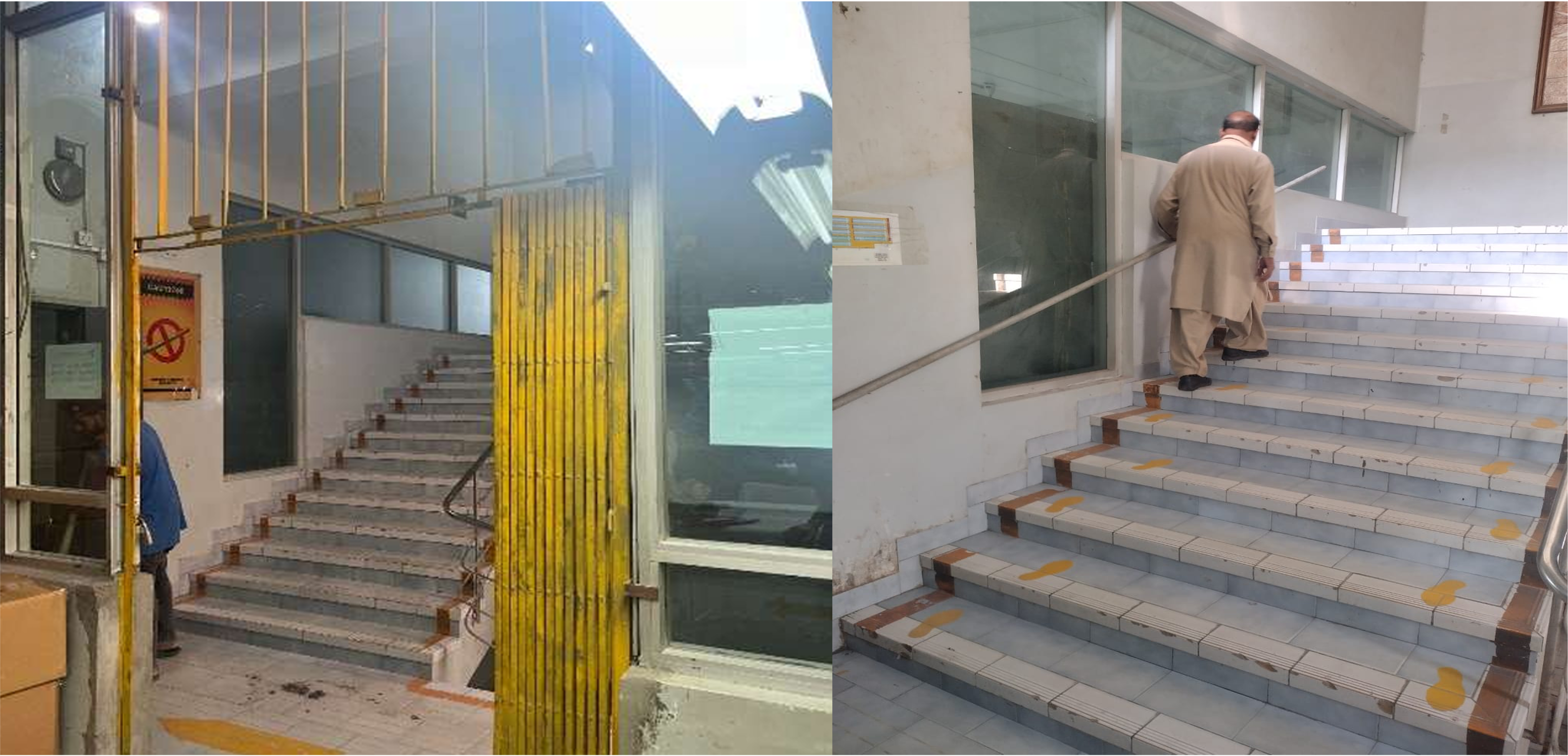
Left – Before: No handrails; Right – After: Handrails installed
Structural Safety
Common findings
Among 900 structural safety risks, overstressed columns are a major concern, with 188 reported cases. Excessive loads, such as water tanks and floor build-ups, often exceed design capacity, increasing the risk of collapse. Additionally, many factories have cracks in their buildings, further compromising workplace safety.
Remediation
The Pakistan Accord Building Standard and Accord engineers recommend reviewing designs, assessing loads, and reducing excessive stress on columns in high-risk areas to ensure safety. Factories are repairing building cracks to maintain structural strength and prevent them from worsening, ensuring long-term safety.
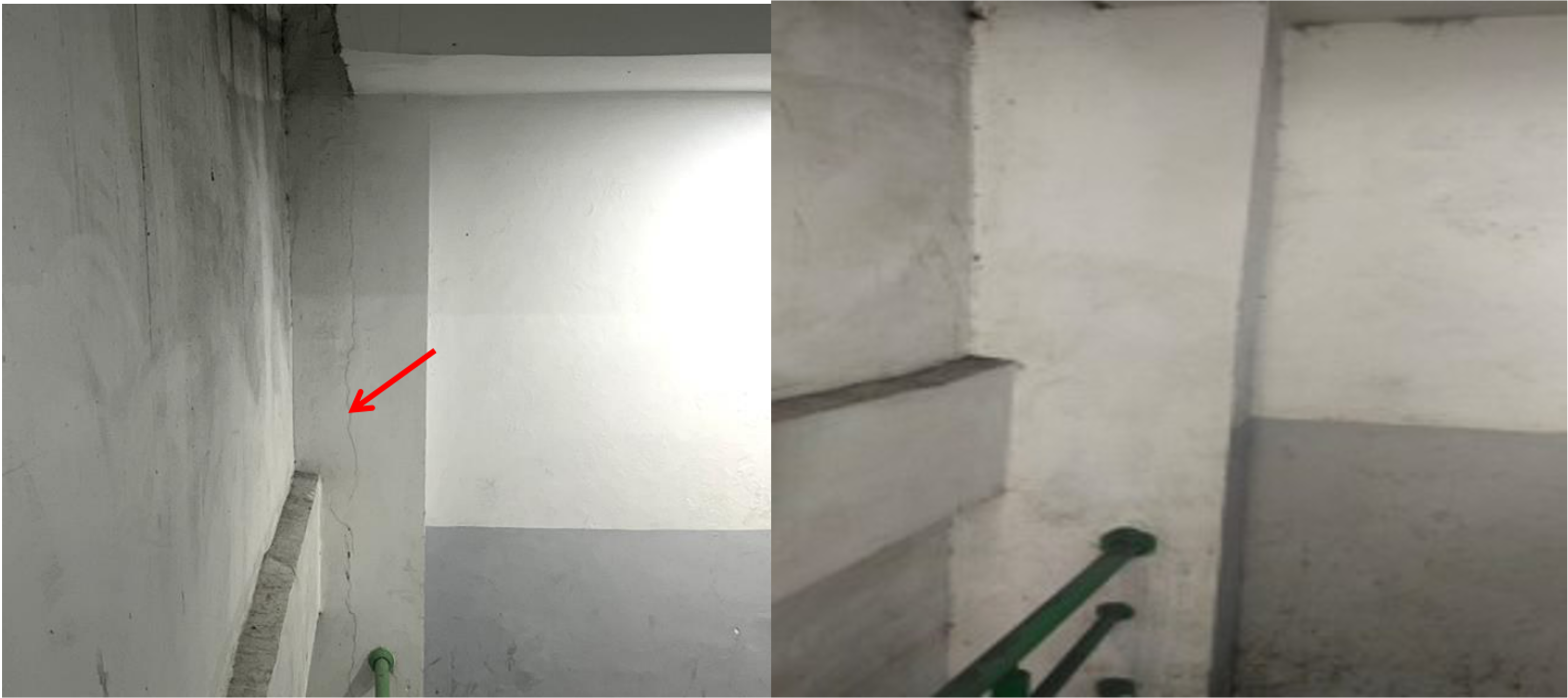
Left – Before: Cracks in walls; Right – After: Fixed walls
Workplace Programs
The Pakistan Accord has made significant progress in its Workplace Programs across factories.
- In November, the Pakistan Accord conducted its first All Employee Meeting at a home textile factory in Karachi.
- As of the end of February, initial meetings have been conducted at 129 factories, while All-Employee Meetings have been organised at 21 factories, totalling 73 sessions and reaching over 18,500 workers.
- The Safety Committee Training has been piloted at one factory, and the contact details to file complaints under the Pakistan Accord Complaints Mechanism have been distributed to 121 factories.
Looking ahead, the Workplace Programs are set to expand further, with additional initial and All-Employee Meetings scheduled from February through April. Concurrently, the key messages will be communicated online via animations.
Recruitment efforts in Karachi and Lahore are underway to strengthen the Workplace Program team, which currently comprises four trainers—two based in Karachi and two in Lahore—and a dedicated complaints team consisting of two specialists and one Occupational Safety and Health (OSH) manager.

The Workplace Programs are set to expand further, with additional initial and All-Employee Meetings scheduled in the coming months.
Events
Technical Workshops for Service Providers - December 2024
In December 2024, the Pakistan Accord Secretariat hosted two technical workshops for consultants in Lahore (December 12) and Karachi (December 16). Focused on the first 30 factories with technically approved CAPs that have commenced remediation, these sessions aimed to clarify the design documentation and certification requirements for fire, structural, and electrical safety.
The workshops featured insights from Country Director Zulfiqar Shah and Chief Safety Officer George Faller, and included in-depth presentations on Fire Alarm & Detection Systems, Fire Suppression Systems, and Structural Detailed Engineering Assessments. These sessions provided detailed explanations of design review processes, required documentation, and core testing methods, and concluded with interactive Q&A rounds. Participants expressed their appreciation for the technical support and interest in continuing these initiatives in the future.
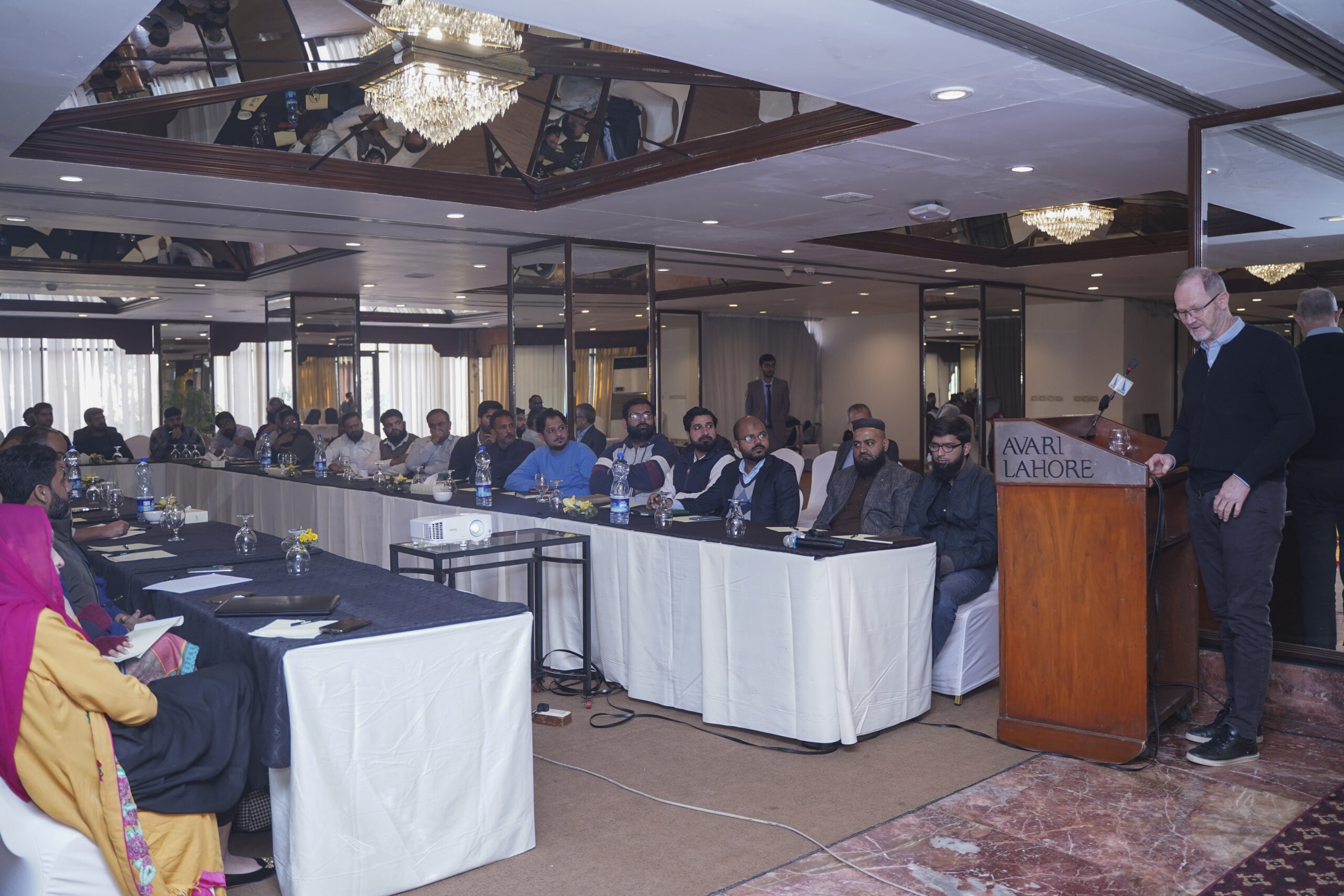
The Pakistan Accord Secretariat hosted two technical workshops for consultants in Lahore and Karachi.
Government Capacity Building Workshops - February 2025
The Pakistan Accord recently conducted capacity-building workshops for government officials in Sindh and Punjab. Held in Karachi from February 3–7, 2025, and in Lahore from February 10–14, 2025, the five-day events brought together over 70 participants from multiple government departments. Expert-led sessions by Arup covered key topics such as building, fire, and electrical safety, along with practical factory visits that provided hands-on insights into regulatory processes and international standards.
Officials including Dr. Abid Shaikh, Athar Ali Shah, Dr. Rizwan Naseer, and Syeda Kulsoom Hayee, inaugurated and closed the sessions, underscoring the initiative’s importance in fostering a stronger safety culture across Pakistan’s workplaces.
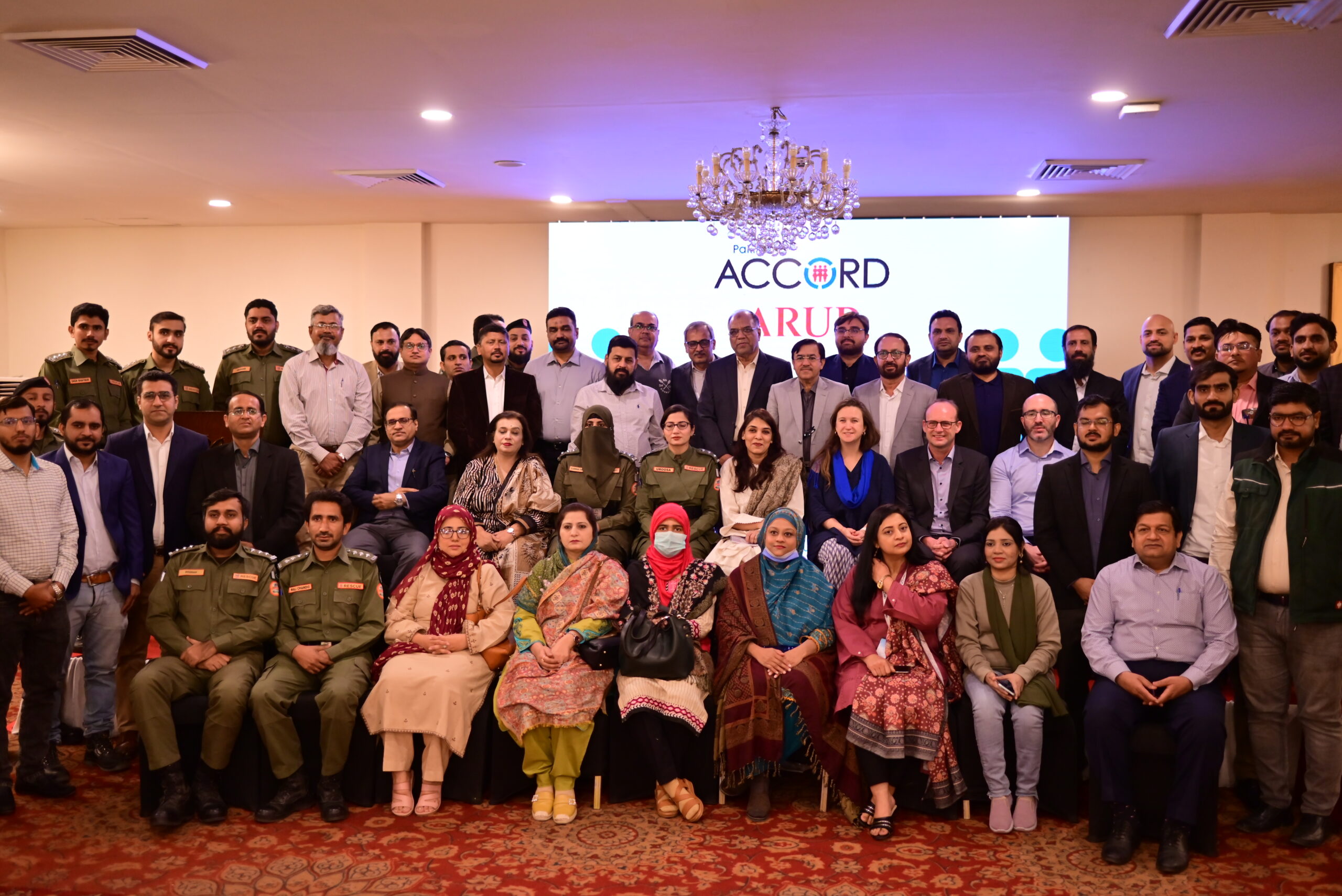
The capacity-building workshops for government officials covered key topics under building, fire, and electrical safety.
Implementation
The Pakistan Accord is actively building and training local teams in its Karachi and Lahore offices to ensure effective program implementation in close coordination with covered suppliers and brands. The organisation is also expanding both its Inspections & Remediation Department and Workplace Program Team. Furthermore, recruitment efforts are underway to hire fire, structural, and boiler safety experts, as well as training and complaints specialists, along with additional support staff.
See the latest vacancies under the Pakistan Accord.
Resources
Stay in Touch
Related updates
May 28, 2025
The International Accord’s All Signatory Meeting was dedicated to insights on the progress and operations of the Accord’s country program in Bangladesh and Pakistan, alongside exploring opportunities to expand the Accord’s scope and impact.
March 10, 2025
This briefing provides updates on the number of signatory brands and covered factories, the rollout of Workplace Programs, and recent events organised by the Pakistan Accord team.
February 19, 2025
The Pakistan Accord team recently organised a series of capacity building workshops for government officials in the Sindh and Punjab provinces.
May 28, 2025
The International Accord’s All Signatory Meeting was dedicated to insights on the progress and operations of the Accord’s country program in Bangladesh and Pakistan, alongside exploring opportunities to expand the Accord’s scope and impact.
February 19, 2025
The Pakistan Accord team recently organised a series of capacity building workshops for government officials in the Sindh and Punjab provinces.
November 28, 2024
On 26 and 27 November 2024 the Pakistan Accord conducted its inaugural safety training meeting in Pakistan. The meeting was attended by all employees of the factory.
Corrective Action Plans (CAPs) and Inspection Reports

Accord
The International Accord Secretariat publishes Corrective Action Plans (CAPs) and initial inspection reports on fire, electrical, and structural safety for factories inspected under the Pakistan Accord. Boiler safety and hazardous substances will be covered in subsequent phases.
These reports reflect safety findings and progress at inspected factories and are published in line with the transparency commitments under the Accord (Section IV, Article 29b of the International Accord, and Section IX, Article 23b of the Pakistan Accord).
The Accord is currently developing a factory search tool to showcase the progress at covered factories in Pakistan. In the meantime, the reports for the first 30 factories are temporarily available on Google Drive.
Related updates
May 28, 2025
The International Accord’s All Signatory Meeting was dedicated to insights on the progress and operations of the Accord’s country program in Bangladesh and Pakistan, alongside exploring opportunities to expand the Accord’s scope and impact.
March 10, 2025
This briefing provides updates on the number of signatory brands and covered factories, the rollout of Workplace Programs, and recent events organised by the Pakistan Accord team.
February 19, 2025
The Pakistan Accord team recently organised a series of capacity building workshops for government officials in the Sindh and Punjab provinces.
May 28, 2025
The International Accord’s All Signatory Meeting was dedicated to insights on the progress and operations of the Accord’s country program in Bangladesh and Pakistan, alongside exploring opportunities to expand the Accord’s scope and impact.
February 19, 2025
The Pakistan Accord team recently organised a series of capacity building workshops for government officials in the Sindh and Punjab provinces.
November 28, 2024
On 26 and 27 November 2024 the Pakistan Accord conducted its inaugural safety training meeting in Pakistan. The meeting was attended by all employees of the factory.
Capacity Building Workshops for Government Officials in Sindh and Punjab
Accord
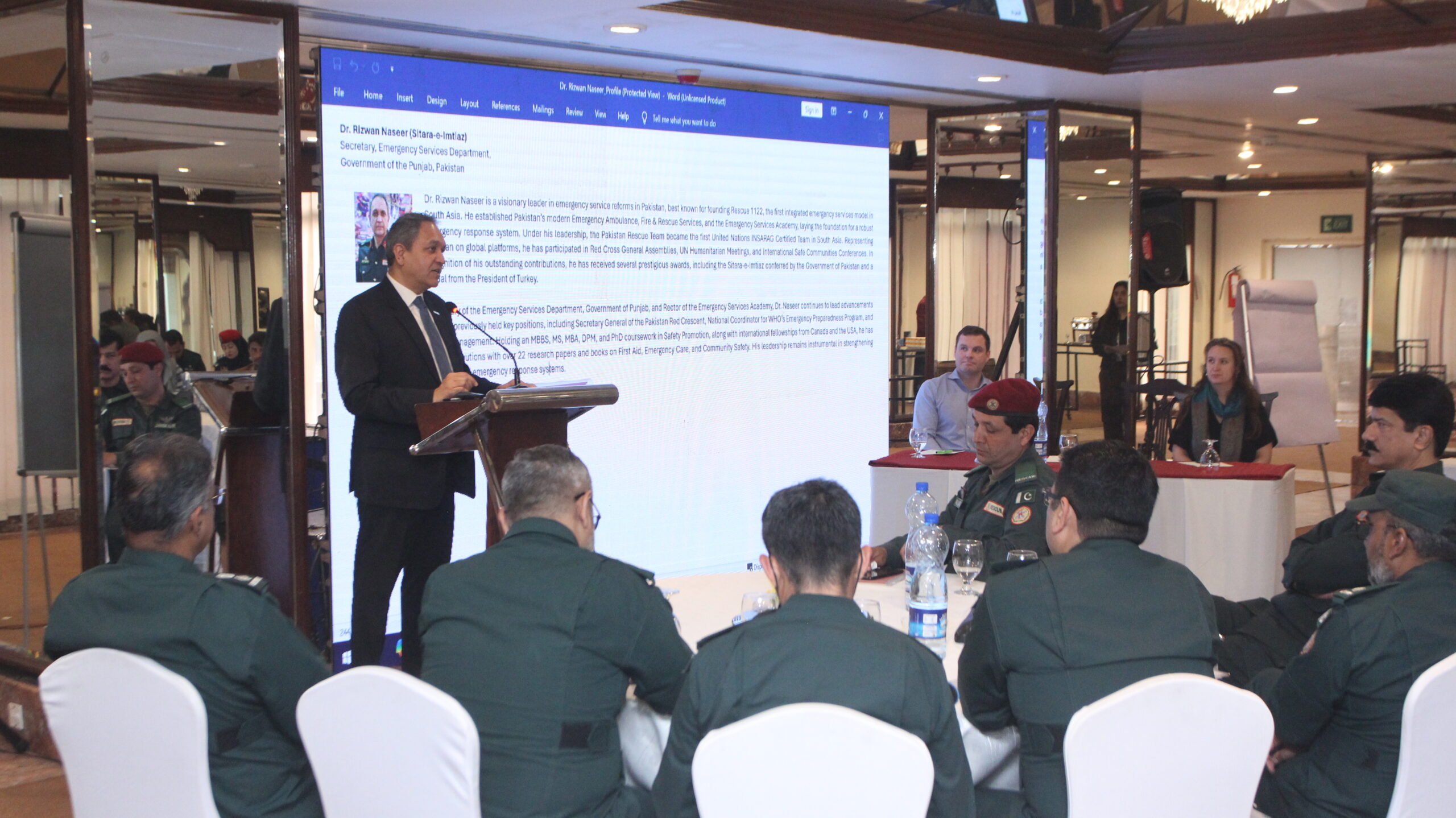
The Pakistan Accord team recently organised a series of capacity building workshops for government officials in the Sindh and Punjab provinces.
The first workshop took place in Karachi from 3 to 7 February, 2025, and was attended by over 70 participants representing eight government departments. These included the Sindh Building Control Authority, Department of Labour and Human Resources, Sindh Emergency Service Department, Civil Defense, K Electric, Fire Brigade Department, and NED University of Engineering and Technology.
The second workshop, held in Lahore from 10 to 14 February, 2025, was also attended by an equal number of participants representing seven departments, including Lahore Development Authority, Faisalabad Development Authority, Department of Labour and Human Resources, Rescue 1122, Civil Defense, UET, NESPAK, and LESCO.
The workshop modules delivered by expert engineers from Arup, included technical and non-technical aspects of building safety, fire safety, and electrical safety, along with an overview of the approval process and regulatory mechanisms in existence in Pakistan. Participants were also exposed to international standards and requirements in the field.
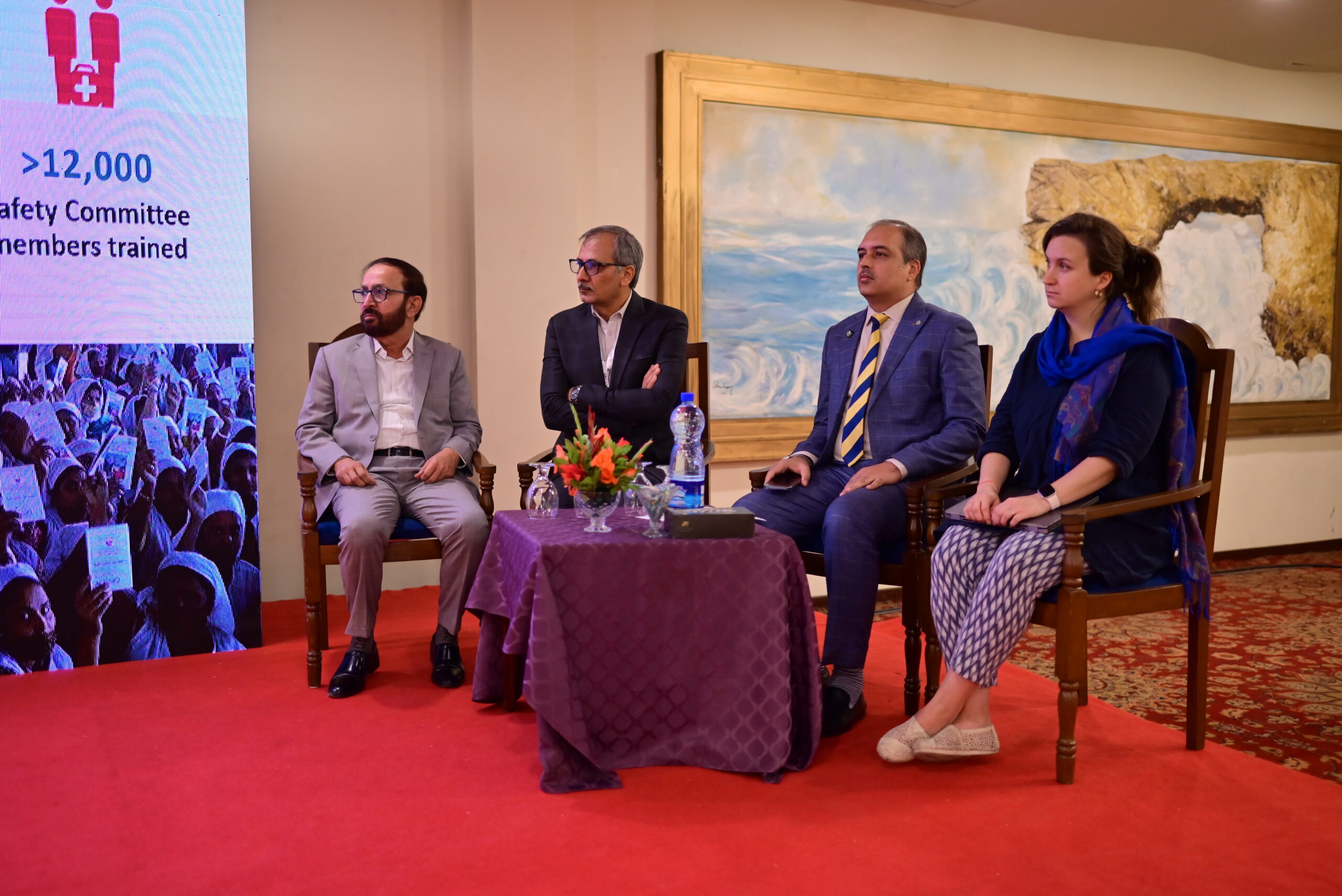
The five-day workshops also provided an opportunity for participants from these departments to engage in mutual learning and sharing, in addition to networking and socialising. The factory visits arranged for a limited number of participants also generated great interest among attendees, along with on-site explanations of various aspects of building safety.
The workshop in Karachi was jointly inaugurated by Dr. Abid Shaikh, Director General of Sindh Emergency Services, and Mr. Athar Ali Shah, Joint Director of the Department of Labour and Human Resources.
In Lahore, Dr. Rizwan Naseer, DG of Rescue 1122, was the Chief Guest at the inaugural session, while Syeda Kulsoom Hayee, DG of Labour Welfare, was the Chief uest at the closing ceremony and distributed certificates among the participants.

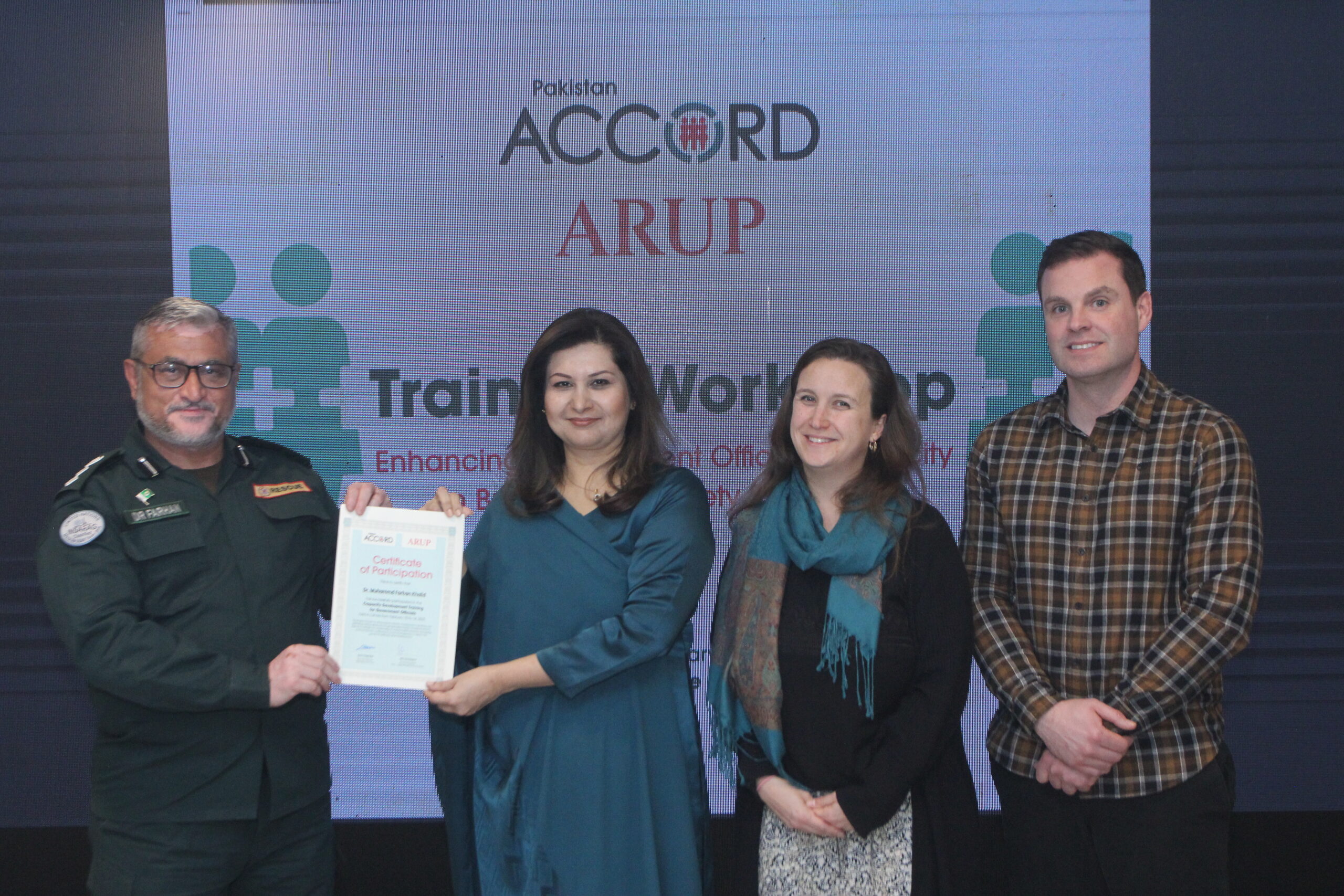
In addition to key trainers Ms. Vita Sanderson, Kenneth Wynne, and Mr. Will from Arup, Mr. Joris Oldenziel, Executive Director of International Accord, Mr. Colm Quinn, Interim Chief Safety Officer, and Mr. Zulfiqar Shah, Country Director of Pakistan Accord, specially participated in the training program.
The Pakistan Accord hopes to contribute to enhancing the capacity of relevant government departments, fostering a stronger safety culture across all workplaces in Pakistan.
Resources:
Related updates
May 28, 2025
The International Accord’s All Signatory Meeting was dedicated to insights on the progress and operations of the Accord’s country program in Bangladesh and Pakistan, alongside exploring opportunities to expand the Accord’s scope and impact.
March 10, 2025
This briefing provides updates on the number of signatory brands and covered factories, the rollout of Workplace Programs, and recent events organised by the Pakistan Accord team.
February 19, 2025
The Pakistan Accord team recently organised a series of capacity building workshops for government officials in the Sindh and Punjab provinces.
May 28, 2025
The International Accord’s All Signatory Meeting was dedicated to insights on the progress and operations of the Accord’s country program in Bangladesh and Pakistan, alongside exploring opportunities to expand the Accord’s scope and impact.
February 19, 2025
The Pakistan Accord team recently organised a series of capacity building workshops for government officials in the Sindh and Punjab provinces.
November 28, 2024
On 26 and 27 November 2024 the Pakistan Accord conducted its inaugural safety training meeting in Pakistan. The meeting was attended by all employees of the factory.
Identification, Prevention and Mitigation of Safety Risks Underway in Pakistan
Accord
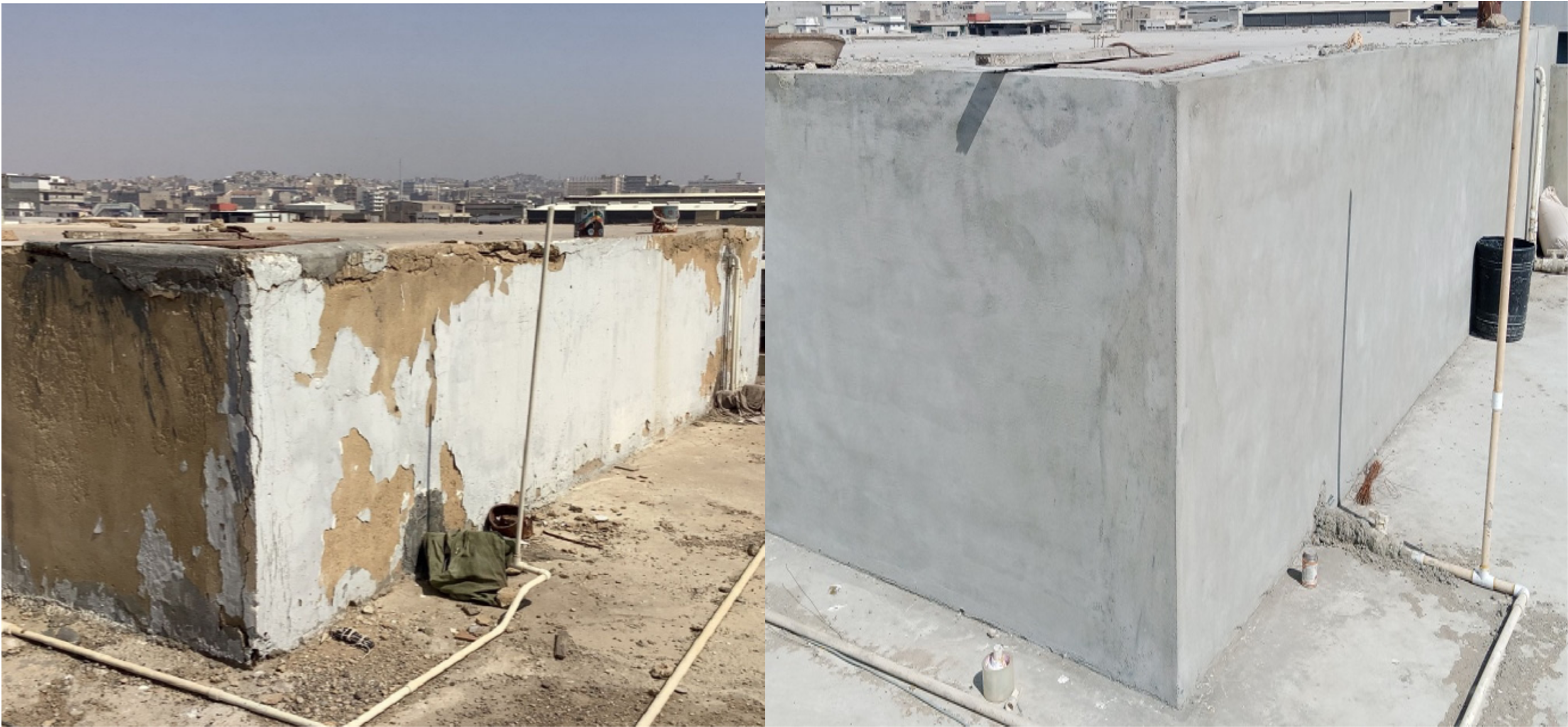
The Pakistan Accord on Health and Safety in the Textile and Garment Industry was established in 2023 with the first batch of initial inspections starting in October 2023. The program is now well underway with fire, electrical and structural safety inspections at 185 factories across Karachi, Lahore and Faisalabad in Pakistan. The Pakistan Accord Workplace Programs were rolled out in August 2024, and the team has now reached a milestone of 100 initial meetings at factories to launch the program.
The safety inspections have identified over 5,500 safety issues, including approximately 2,400 related to electrical safety, 2,200 to fire safety, and 900 to structural integrity.
In response, factories have begun addressing these findings and are collaborating closely with the Pakistan Accord’s engineering and remediation teams to implement safety improvements at their facilities.
Immediate Action for Critical Issues
In cases where Accord engineers identified urgent safety concerns, factories have taken immediate remedial actions. These actions include:
- Load Reduction: In areas with overstressed columns, factories have reduced the load on structures to ensure the structural integrity of the building.
- Electrical Panel Shutdown: Unsafe electrical panels have been shut down to mitigate risks of short circuits caused by electrical hotspots and tangled wires.
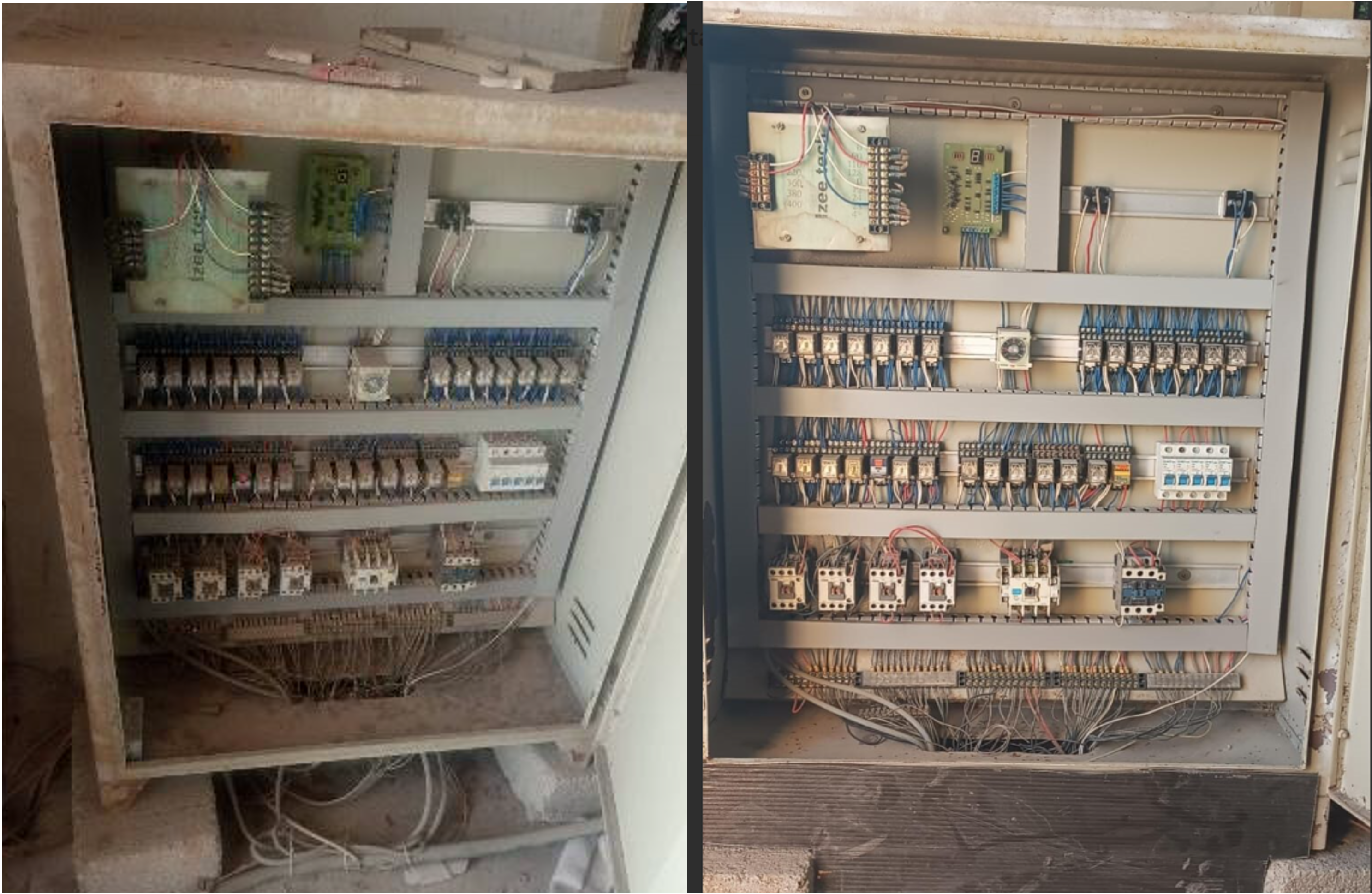
Left – Before: Tangled wires, dust in electrical panel; Right – After: Organised wires and clean electrical panel to mitigate short circuit risks
Electrical Safety Remediation
Electrical safety has been identified as the most significant risk at the inspected factories, with over 2,400 findings. Most factory fires are caused by electrical hazards, so remediating these issues is a crucial preventative measure. To address these issues, factories are taking the following steps:
- Thermographic Testing: Independent thermographic surveys are being scheduled to detect overheating components, loose connections, and other faults.
- Repairs and Maintenance: Electrical panels are being assessed to identify sources of abnormal temperatures. Actions include tightening connections, redistributing electrical loads, and replacing faulty components and cables. Additionally, factories are actively minimising combustible materials near electrical panels, a crucial measure for reducing the risk of ignition.

Left – Before: Combustible material near electrical panel; Right – After: Combustible material removed
Fire Safety Remediation Measures
Among the 2,200 fire safety findings, 986 issues are related to means of escape. In response to these findings, factories are:
- Removing Locking Features: Non-compliant locking mechanisms are being removed, and doors are being fitted with easy-to-open mechanisms that comply with NFPA 101 and the Pakistan Accord Building Standard.
- Correcting Door Swing Direction: Exit doors are being replaced or modified to ensure they swing in the direction of escape routes, facilitating smoother evacuations during emergencies.
- Installing Handrails: Factories are installing handrails to ensure safe egress and help people safely exit in case of fire safety accidents.

Left – Before: No handrails; Right – After: Handrails installed
Structural Safety Remediation Measures
Among the 900 structural safety findings, overstressed columns have been a common issue. To mitigate the risks, factories are:
- Reviewing Designs and Loads: Factories are engaging engineering consultants to conduct reviews of design, load distribution, and stress levels on overstressed columns.
- Reducing Loads: Excessive loads are being removed from columns to ensure compliance with the Pakistan Accord Building Standard.
- Fixing Cracks: Factories are fixing building cracks because these repairs help maintain the building’s strength and ensure a safe environment. Addressing cracks early prevents them from developing into larger issues, keeping the structure sound over time.
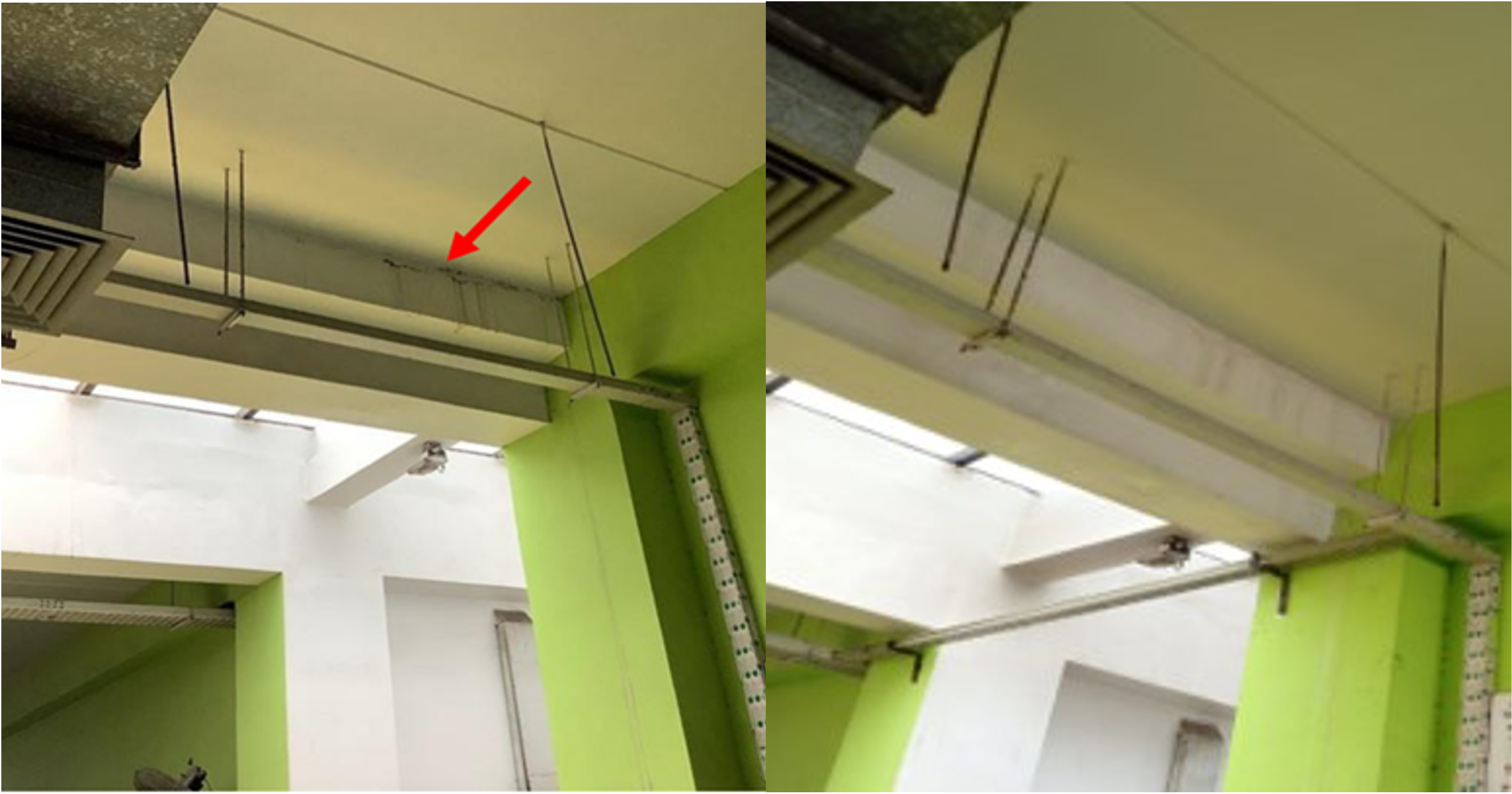
Left – Before: Cracks in walls; Right – After: Fixed walls
By promptly addressing these safety concerns, factories under the Pakistan Accord are taking important and tangible measures to prevent and mitigate safety hazards within Pakistan’s textile and garment industry. The Pakistan Accord is encouraged by the level of cooperation by suppliers and their commitment to safe workplaces.
The International Accord Secretariat published the first set of Corrective Action Plans (CAPs) and initial inspection reports on fire, electrical, and structural safety for 30 factories under the Pakistan Accord on Friday, 21 February 2025. These reports reflect the safety findings and progress at the inspected factories and are published in accordance with the transparency commitments under the Accord (Section IV, Article 29b of the International Accord, and Section IX, Article 23b of the Pakistan Accord).
The Accord is currently developing a factory search tool to showcase the progress at covered factories in Pakistan. In the meantime, the reports are temporarily available here.
Related updates
May 28, 2025
The International Accord’s All Signatory Meeting was dedicated to insights on the progress and operations of the Accord’s country program in Bangladesh and Pakistan, alongside exploring opportunities to expand the Accord’s scope and impact.
March 10, 2025
This briefing provides updates on the number of signatory brands and covered factories, the rollout of Workplace Programs, and recent events organised by the Pakistan Accord team.
February 19, 2025
The Pakistan Accord team recently organised a series of capacity building workshops for government officials in the Sindh and Punjab provinces.
May 28, 2025
The International Accord’s All Signatory Meeting was dedicated to insights on the progress and operations of the Accord’s country program in Bangladesh and Pakistan, alongside exploring opportunities to expand the Accord’s scope and impact.
February 19, 2025
The Pakistan Accord team recently organised a series of capacity building workshops for government officials in the Sindh and Punjab provinces.
November 28, 2024
On 26 and 27 November 2024 the Pakistan Accord conducted its inaugural safety training meeting in Pakistan. The meeting was attended by all employees of the factory.
Resources for Pakistan Accord Covered Factories

Accord
Explore essential resources and information for all factories covered under the Pakistan Accord on this page.
- Pakistan Accord on Health and Safety in the Textile and Gament Industry
- Pakistan Accord Building Standard
- Supplier Briefings
- Information Pack for Suppliers
- Pakistan Accord Workshop for Suppliers and Service Providers - Dec 2024
- Pakistan Accord - DEA Guidance
- Pakistan Accord - SUPs Initial Design Review Process
Related updates
May 28, 2025
The International Accord’s All Signatory Meeting was dedicated to insights on the progress and operations of the Accord’s country program in Bangladesh and Pakistan, alongside exploring opportunities to expand the Accord’s scope and impact.
March 10, 2025
This briefing provides updates on the number of signatory brands and covered factories, the rollout of Workplace Programs, and recent events organised by the Pakistan Accord team.
February 19, 2025
The Pakistan Accord team recently organised a series of capacity building workshops for government officials in the Sindh and Punjab provinces.
May 28, 2025
The International Accord’s All Signatory Meeting was dedicated to insights on the progress and operations of the Accord’s country program in Bangladesh and Pakistan, alongside exploring opportunities to expand the Accord’s scope and impact.
February 19, 2025
The Pakistan Accord team recently organised a series of capacity building workshops for government officials in the Sindh and Punjab provinces.
November 28, 2024
On 26 and 27 November 2024 the Pakistan Accord conducted its inaugural safety training meeting in Pakistan. The meeting was attended by all employees of the factory.
Pakistan Accord Holds its first All Employee Meeting in Pakistan
Accord
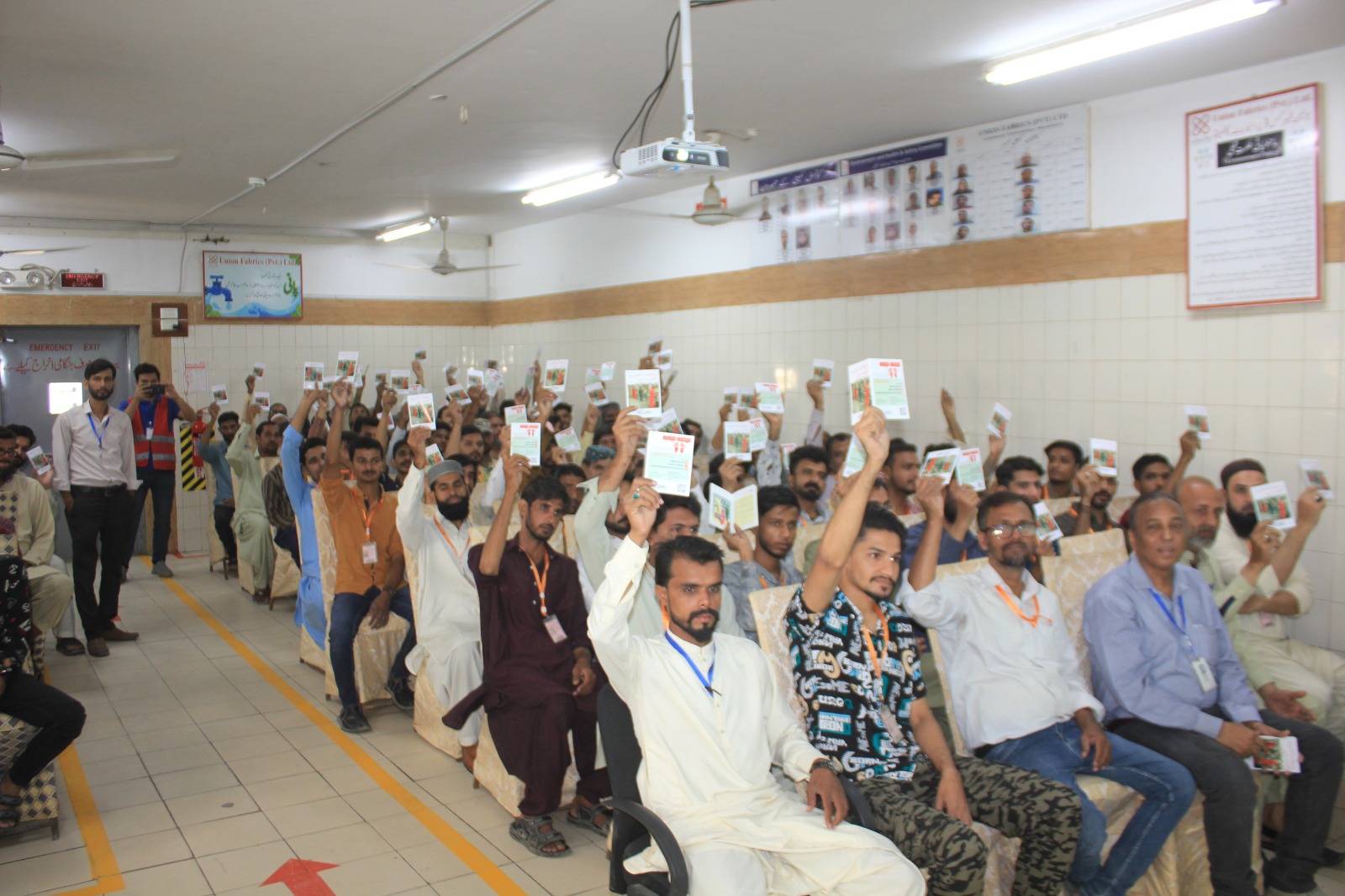
On 26 and 27 November 2024 the Pakistan Accord conducted its inaugural safety training meeting in Pakistan at Union Fabrics (Pvt.) Limited, a home textile manufacturing facility located in Karachi. The meeting was attended by all employees of the factory.
Opening remarks
During the opening remarks of the kick-off training session, Kirstine Drew, Chief Complaints Officer at Accord Pakistan, first provided an overview of the Pakistan Accord program in Pakistan.
Zulfiqar Shah, Country Manager of Pakistan Accord, later addressed the attendees, underlining the importance of the Safety Training Program.
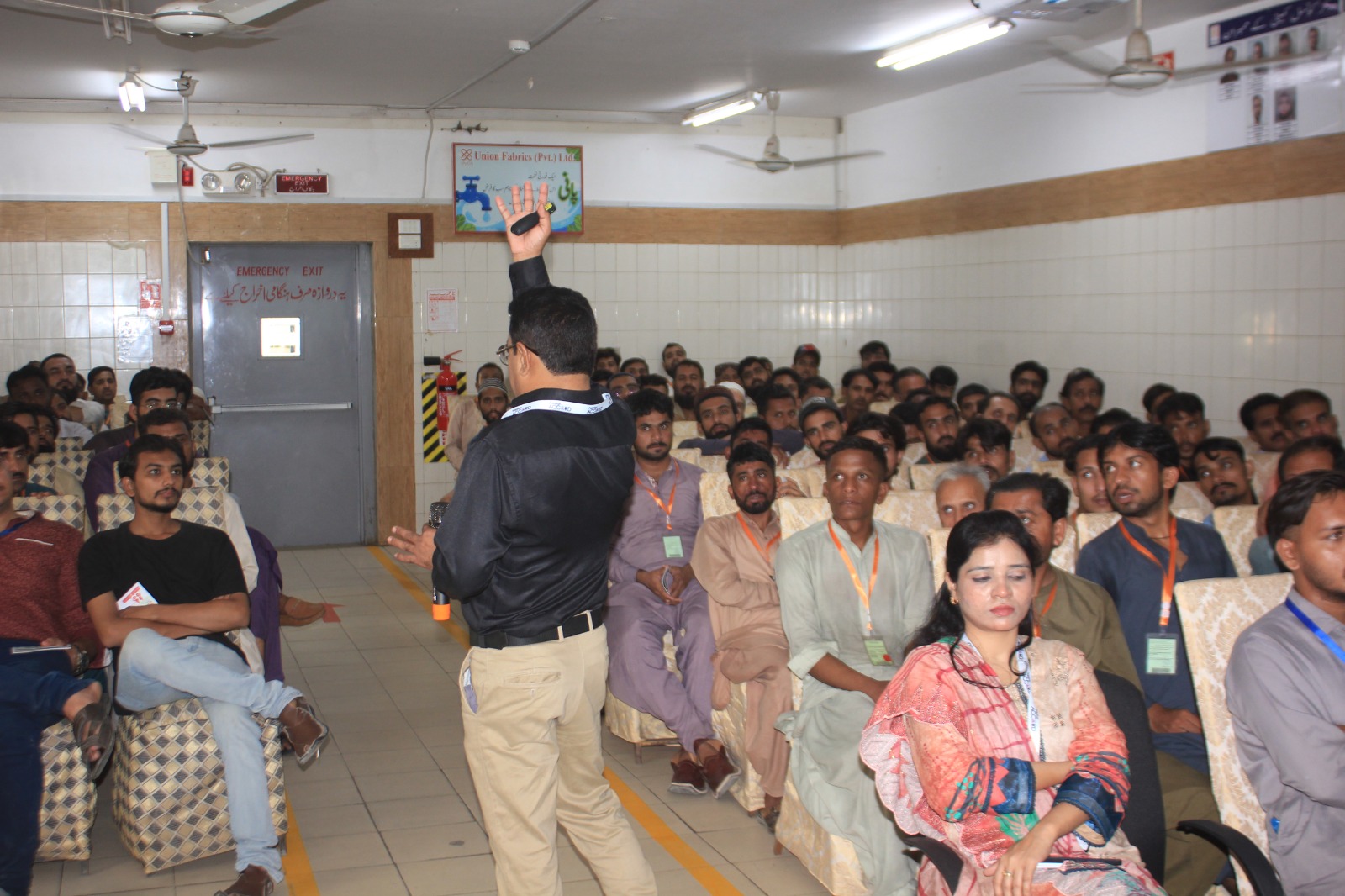
Training sessions
The topic of the training was ‘Rights and Responsibilities under the Pakistan Accord and Introduction to the Safety Committee’. During the training, Safety Committee members were introduced to the participants and given the opportunity to explain their roles and responsibilities for safety and health within the factory.
Six sessions were held over two days, with active participation from the workers. The sessions were led by three members of the Pakistan Accord Training team: Mr. Numair Aman, Mr. Abdul Qadir and Mr. Murtuza Ahmed.
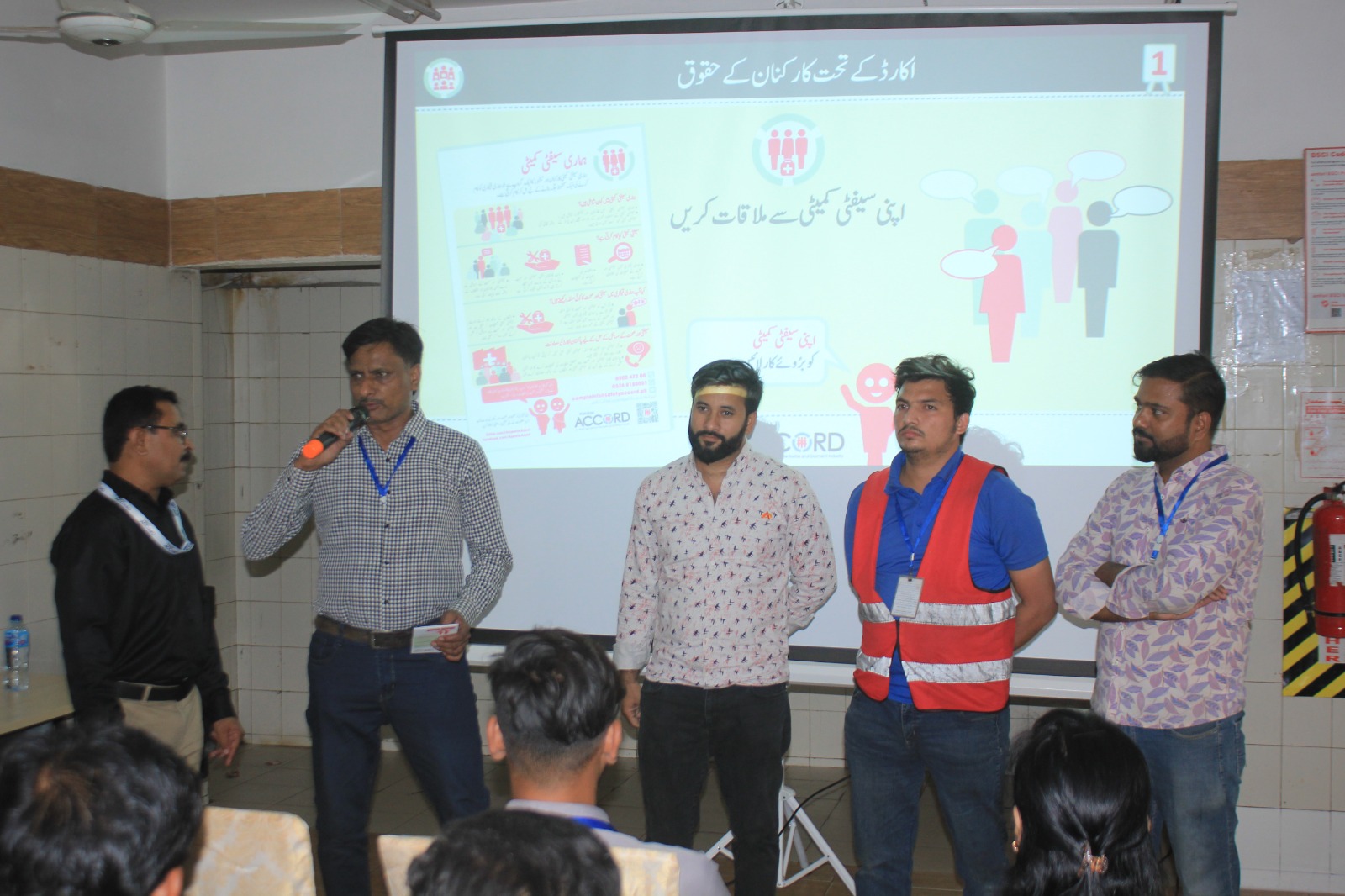
All participants were provided with a booklet on the rights and responsibilities of workers under the Pakistan Accord. Posters and large Panaflex banners describing the role of the Safety Committee and providing contact information for the Pakistan Accord were posted in strategic locations throughout the facility, including the worker canteen, main gate, and assembly points.
The sessions were conducted in Urdu and all accompanying materials printed in Urdu.
The Pakistan Accord extends its gratitude to the management of Union Fabrics for its support in facilitating the first Pakistan Accord All Employee Meeting in Pakistan.
Resources:
Related updates
May 28, 2025
The International Accord’s All Signatory Meeting was dedicated to insights on the progress and operations of the Accord’s country program in Bangladesh and Pakistan, alongside exploring opportunities to expand the Accord’s scope and impact.
March 10, 2025
This briefing provides updates on the number of signatory brands and covered factories, the rollout of Workplace Programs, and recent events organised by the Pakistan Accord team.
February 19, 2025
The Pakistan Accord team recently organised a series of capacity building workshops for government officials in the Sindh and Punjab provinces.
May 28, 2025
The International Accord’s All Signatory Meeting was dedicated to insights on the progress and operations of the Accord’s country program in Bangladesh and Pakistan, alongside exploring opportunities to expand the Accord’s scope and impact.
February 19, 2025
The Pakistan Accord team recently organised a series of capacity building workshops for government officials in the Sindh and Punjab provinces.
November 28, 2024
On 26 and 27 November 2024 the Pakistan Accord conducted its inaugural safety training meeting in Pakistan. The meeting was attended by all employees of the factory.
Pakistan Accord: Supplier Briefing #5


Supplier Briefing #5
These briefings are designed for all factories and suppliers listed by Pakistan Accord signatory brands. They include updates on key developments under the Pakistan Accord, along with information on upcoming events, guidance materials, and resources for suppliers.
We encourage all suppliers and factories covered by the Pakistan Accord to read these briefings and to share suggestions on what they would like to see in them by contacting us via pakistan.factories@internationalaccord.org.
This briefing includes updates on:
- Coverage: Number of Signatory Brands, Covered Factories and Workers
- Program Rollout: Inspections and Remediation, Workplace Program
- Events: Needs Assessment Workshop
- Implementation: Hiring Update & Vacancies
Number of Signatory Brands, Covered Factories and Workers
At the time of writing this briefing, 128 global brands sourcing textiles and garments from Pakistan have signed the Pakistan Accord and committed to working with their suppliers to ensure workplace health and safety. The latest brands to sign the Pakistan Accord include Fatface Ltd., Outerstuff LLC, Image International Limited, Pel Industries, among others.
The Pakistan Accord signatory brands are headquartered in 18 countries across Europe, the USA, Australia, Hong Kong, Turkey and Japan, and include some of the world’s largest clothing brands and retailers. Collectively, these brands source approximately US$3 billion worth of goods from over 500 suppliers in Pakistan employing over 574,000 workers.
View the latest list of Pakistan Accord signatories.
View the list of factories participating in the Pakistan Accord programs.
Program Rollout
Factory Inspections and Remediation
Inspections
85 garment and textile factories in Karachi, Lahore, and Faisalabad covered under the Pakistan Accord have been inspected on fire, electrical, and structural safety. By September, the Accord expects to conduct initial inspections at 100 factories. All factories are being inspected against the Pakistan Accord Building Standard (Standard) that establishes minimum life safety criteria to reduce danger to life from fire, structural, electrical, and boiler hazards as well as safety risks relating to the storage, use, and handling of hazardous substances.
Remediation
CAP Template Launch Webinar – June 2024:
The Pakistan Accord Secretariat organised a briefing session on 11 June for the first 50 inspected factories. This session introduced the purpose, steps, and roles of brands and suppliers in the technical finalisation of the factory Corrective Action Plans (CAPs). With support from the Pakistan Accord Secretariat, inspected factories develop a CAP and agree on timelines to address the remediation of safety findings in a timely and effective manner.
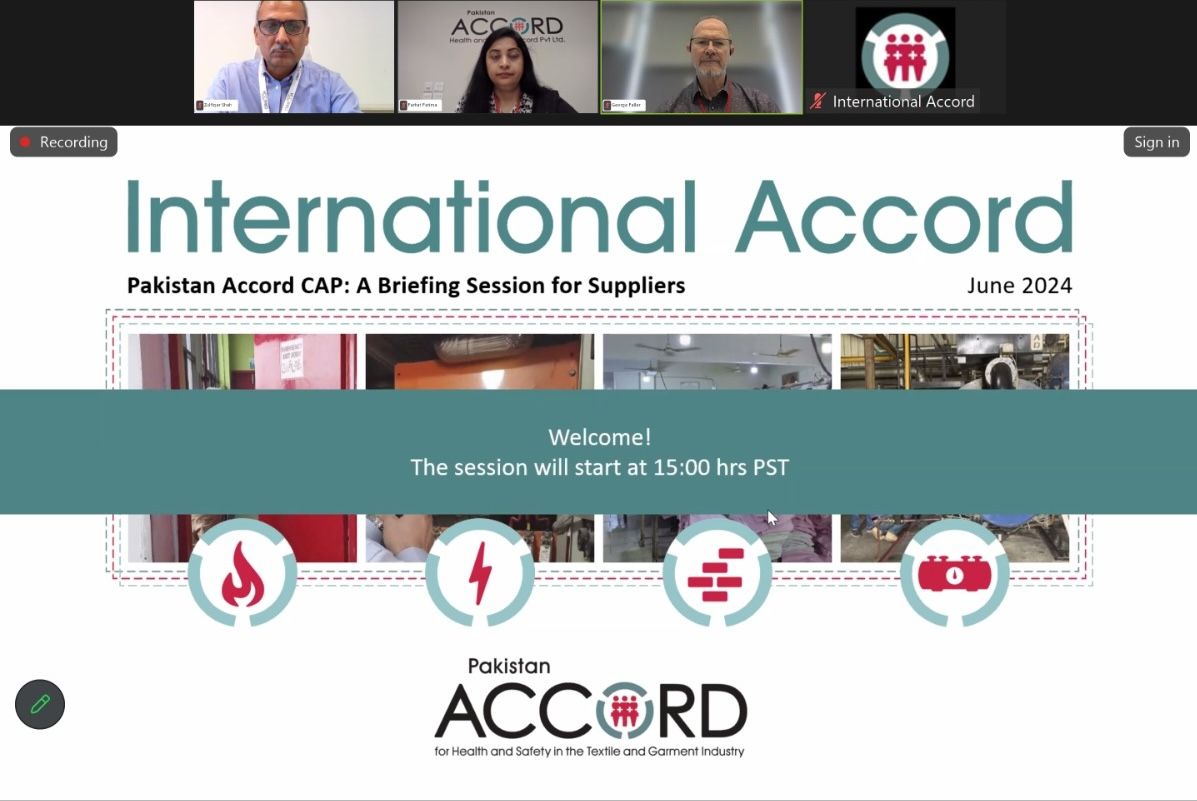
The webinar included technical insights on the CAP templates by George Faller, Chief Safety Officer, and updates on the rollout of the inspections program by Zulfiqar Shah, Country Manager of the Pakistan Accord. The session was moderated by Farhat Fatima, the Remediation Department Manager for the Pakistan Accord.
We thank the over 60 representatives of garment factories from Karachi, Lahore, and Faisalabad for participating in the webinar. The Pakistan Accord Secretariat intends to organise more such webinars for suppliers to explain the CAP development process.
Finance Plan Briefing for Suppliers – August 2024:
The Pakistan Accord Secretariat conducted a briefing session to a first group of inspected factories, offering insights into the Accord’s financing remediation policies. During the session, participants were introduced to the Finance Plan Guidance developed by the Secretariat to support factories in the financial planning of their remediation works. This Guidance offers tools, including Remediation and Finance Schedule Templates, designed to support factories in aligning remediation costs with the timelines in their CAPs.
The Pakistan Accord Secretariat will gather feedback on the guidance document and finance planning tools from this first group of factories, addressing any challenges or gaps, before it is rolled out to all covered factories in the coming months.
Workplace Program
Following stakeholder consultations on the design and curriculum over the past few months, the Pakistan Accord Secretariat hosted an informational briefing session on the rollout of its Workplace Program on August 19, 2024, in Karachi. The Workplace Program, which includes Safety Training and a Complaints Mechanism at covered factories, is a key component of the Pakistan Accord. It aims to build the capacity of joint labour-management Safety Committees to maintain safe workplaces, raise workers’ awareness of safety and health, ensure compliance with OSH-related requirements, and provide workers with access to remedy.

The event featured a panel discussion and a detailed briefing, providing participants with an opportunity to ask questions and provide feedback. Over 70 participants representing 30 covered factories attended the orientation session. The International Labour Organisation (ILO) and Deutsche Gesellschaft für Internationale Zusammenarbeit (GIZ) also attended as special invitees.
The Pakistan Accord Secretariat is planning to organise similar informational sessions with additional factories as the program is rolled out in Lahore and Karachi.
Events
Needs Assessment Workshops – August 2024
The Pakistan Accord Secretariat and ARUP, an international engineering firm, organised two needs assessment workshops during the week of 5 August 2024 in Karachi and Lahore. The goal of the workshops is to support local government capabilities in implementing and enforcing health and safety in Pakistan’s textile and garment industry by developing a targeted training program for the relevant Sindh and Punjab government agencies.
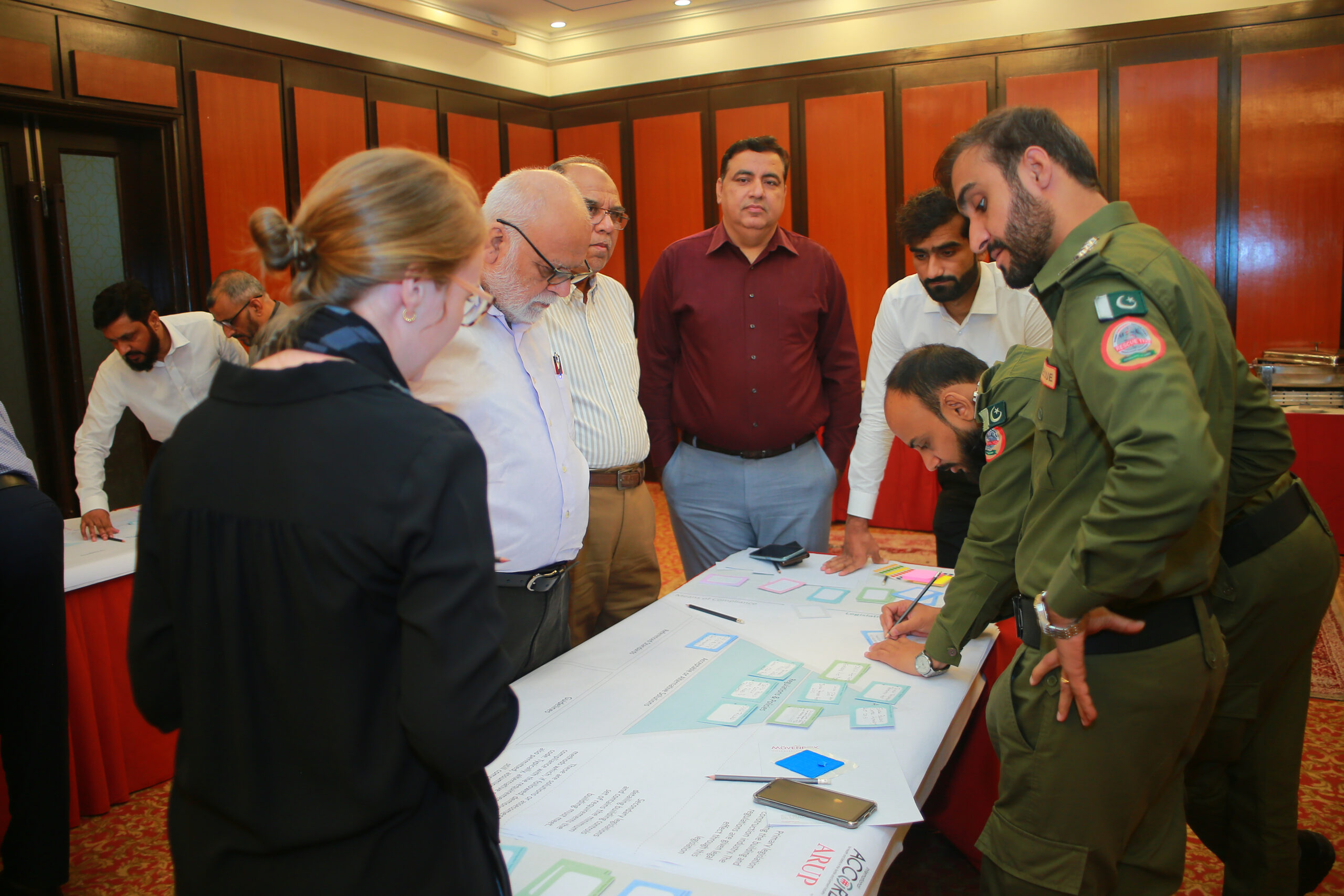
These interactive sessions brought together engineers and key government stakeholders, including Pakistan’s emergency services 1122, the Karachi Municipal Corporation, local building control authorities, and the Departments of Labour and Human Resources, among others. The workshops served as an engaging platform for exchanging information and fostering collaboration among various actors and agencies. Participants critically examined the regulatory framework of building safety, discussed certification and monitoring processes, and identified opportunities for synergy.
Implementation
The Pakistan Accord is in the process of building and training local teams in Karachi and Lahore to ensure the effective implementation of its programs in coordination with covered suppliers and brands. The team has recently hired a new batch of fire, structural and electrical engineers to join the Inspections & Remediation Department as well as training and complaints specialists to join the Workplace Programs Department. Further recruitment of boiler safety experts, training and complaints specialists, and additional support staff is currently in progress. The latest vacancies under the Pakistan Accord are available on the Accord website.
Resources
Stay in Touch
Related updates
May 28, 2025
The International Accord’s All Signatory Meeting was dedicated to insights on the progress and operations of the Accord’s country program in Bangladesh and Pakistan, alongside exploring opportunities to expand the Accord’s scope and impact.
March 10, 2025
This briefing provides updates on the number of signatory brands and covered factories, the rollout of Workplace Programs, and recent events organised by the Pakistan Accord team.
February 19, 2025
The Pakistan Accord team recently organised a series of capacity building workshops for government officials in the Sindh and Punjab provinces.
May 28, 2025
The International Accord’s All Signatory Meeting was dedicated to insights on the progress and operations of the Accord’s country program in Bangladesh and Pakistan, alongside exploring opportunities to expand the Accord’s scope and impact.
February 19, 2025
The Pakistan Accord team recently organised a series of capacity building workshops for government officials in the Sindh and Punjab provinces.
November 28, 2024
On 26 and 27 November 2024 the Pakistan Accord conducted its inaugural safety training meeting in Pakistan. The meeting was attended by all employees of the factory.
Rollout of Pakistan Accord Workplace Programs
Accord

The Pakistan Accord Secretariat hosted a briefing on the rollout of Workplace Programs on August 19, 2024, in Karachi. Over 70 participants representing 30 covered factories attended the orientation session. The International Labour Organisation (ILO) and Deutsche Gesellschaft für Internationale Zusammenarbeit (GIZ) also attended the session as special invitees.
The event featured a panel discussion and a detailed briefing, providing participants with an opportunity to ask questions and provide feedback.
The Workplace Program, which includes Safety Training and a Complaints Mechanism at covered factories, is a key component of the Pakistan Accord. It aims to help build the capacity of joint labour management Safety Committees to maintain safe workplaces, raise workers’ awareness of safety and health, ensure compliance with OSH-related requirements, and provide workers with access to remedies.
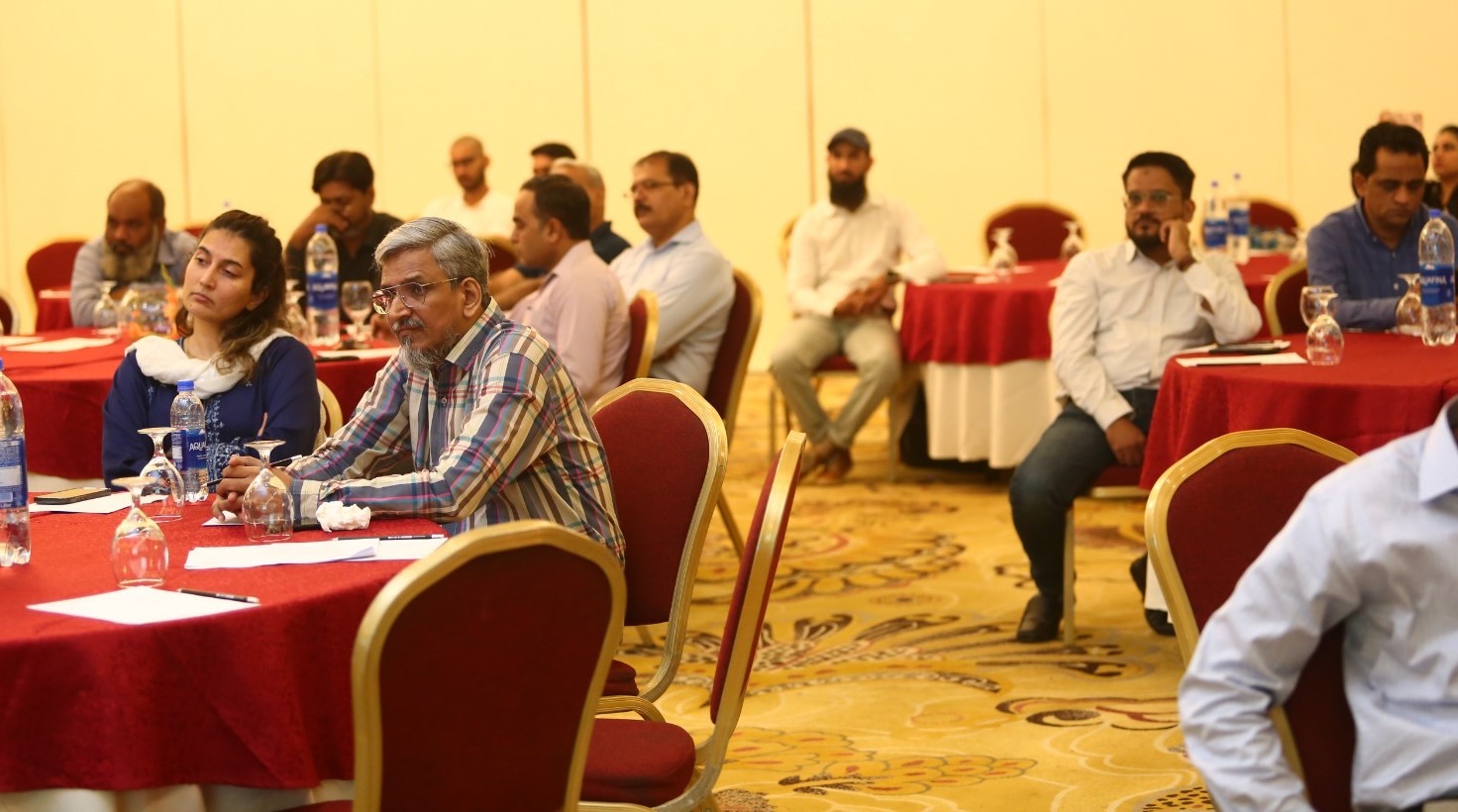
Zulfiqar Shah, Country Manager of the Pakistan Accord, highlighted the importance of workplace safety in his opening remarks. He also expressed appreciation for the cooperation extended by key stakeholders, particularly the factories.
He provided an update to the participants, stating that the Pakistan Accord on Health and Safety in the Textile and Garment Industry, a legally binding agreement between global brands and unions, took effect in January 2023. To date,128 brands that collectively source over $3 billion worth of goods from 500 factories in Pakistan’s Sindh and Punjab provinces have signed the agreement. The program aims to reach over 500,000 workers through its safety training program and has conducted safety inspections in over 80 factories.
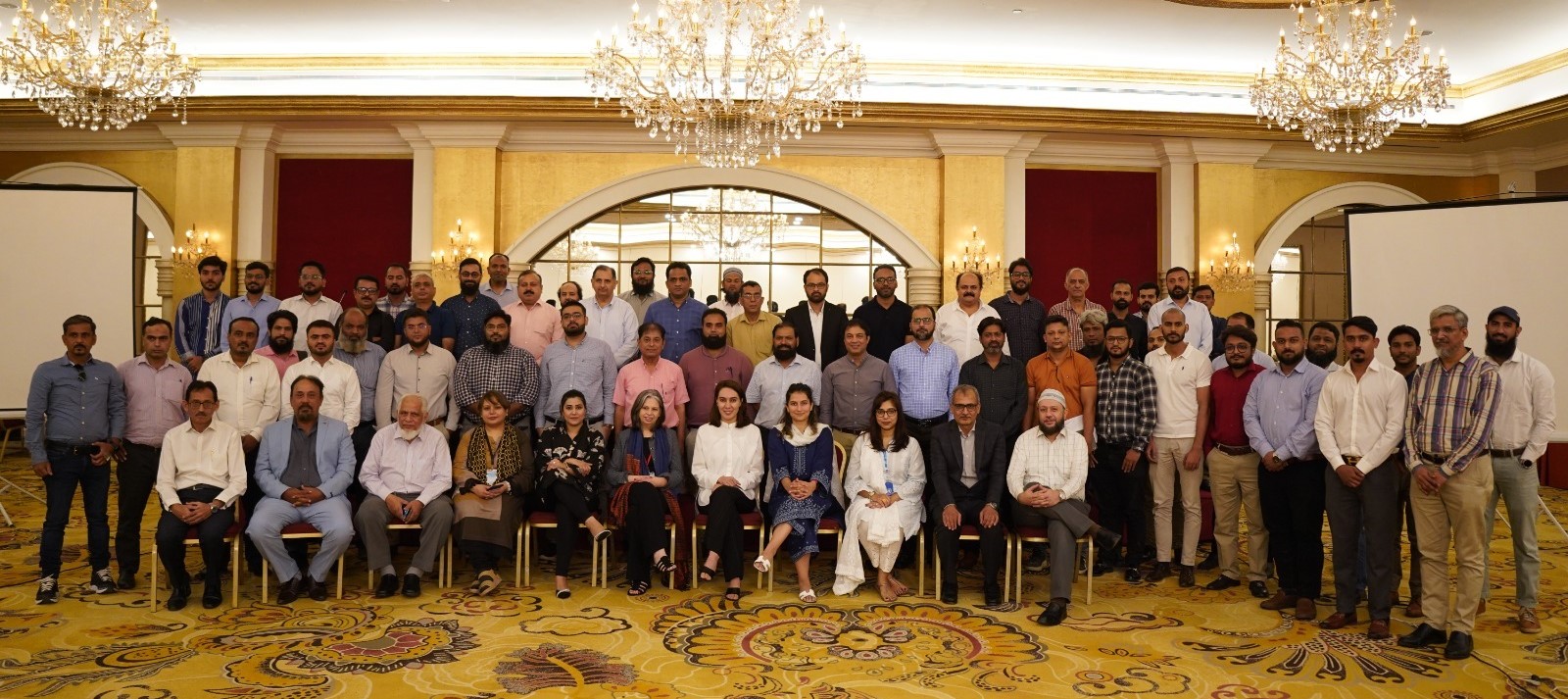
Kirstine Drew, Chief Complaints Officer, Pakistan Accord explained in her presentation that the right to refuse unsafe work, provision of safety training programs, joint labour management Safety Committees, and the Complaints Mechanism are the cornerstones of worker participation in the Accord program.
The Pakistan Accord Safety Training program is made up of two parts: All Employee Meetings (AEMs), which are informational sessions attended by all workers of the factory, covering topics such as evacuation, health and safety risks, and workers’ rights and responsibilities regarding workplace safety. The second component is the Safety Committee Training Program, which includes both mandatory and optional modules. These modules cover various issues, including the role of Safety Committees in handling workers’ complaints and the organisation of factory walkthroughs.
The complaints mechanism is implemented on behalf of signatory brands and in accordance with UN effectiveness criteria – legitimate, accessible, predictable, equitable, transparent, rights-compatible – as well as the requirements of due diligence legislation. The Accord team works with factory management and brands to address complaints and ensure the delivery of remedies.
Workers at covered factories can submit complaints via the following channels:
WhatsApp: +92 326 8180001 Local No: 0326 8180001 Email: complaints@safetyaccord.pk
In the panel discussion, Rehan Ahmedani, representing Synergies Sourcing, and Neelofar Saleem, representing Bestseller, emphasised that having an independent complaints mechanism in place is now a legal requirement for brands under various legislations in Europe, such as the German Supply Chain Act and the EU Corporate Sustainability Due Diligence Directive (CSDDD).
Both speakers noted that receiving complaints is not necessarily ‘bad’, and they prefer to work with suppliers who have efficient and effective systems to address them.
They also encouraged supplier factories to embrace the Safety Training Program as an opportunity to strengthen workplace safety and health and contribute to learning.
During the Q&A session, participating factories highlighted the challenges they face due to the presence of multiple complaints mechanisms within their facilities, expressing concern that having various grievance mechanisms in the same location confuses workers.
The event concluded with a collective commitment to work together to make workplaces safer for factory workers. The Pakistan Accord Secretariat is planning to organise similar informational sessions with additional covered factories in Lahore and Karachi.
Resources:
Related updates
May 28, 2025
The International Accord’s All Signatory Meeting was dedicated to insights on the progress and operations of the Accord’s country program in Bangladesh and Pakistan, alongside exploring opportunities to expand the Accord’s scope and impact.
March 10, 2025
This briefing provides updates on the number of signatory brands and covered factories, the rollout of Workplace Programs, and recent events organised by the Pakistan Accord team.
February 19, 2025
The Pakistan Accord team recently organised a series of capacity building workshops for government officials in the Sindh and Punjab provinces.
May 28, 2025
The International Accord’s All Signatory Meeting was dedicated to insights on the progress and operations of the Accord’s country program in Bangladesh and Pakistan, alongside exploring opportunities to expand the Accord’s scope and impact.
February 19, 2025
The Pakistan Accord team recently organised a series of capacity building workshops for government officials in the Sindh and Punjab provinces.
November 28, 2024
On 26 and 27 November 2024 the Pakistan Accord conducted its inaugural safety training meeting in Pakistan. The meeting was attended by all employees of the factory.
International Accord Statement on the Political Situation in Bangladesh
Accord
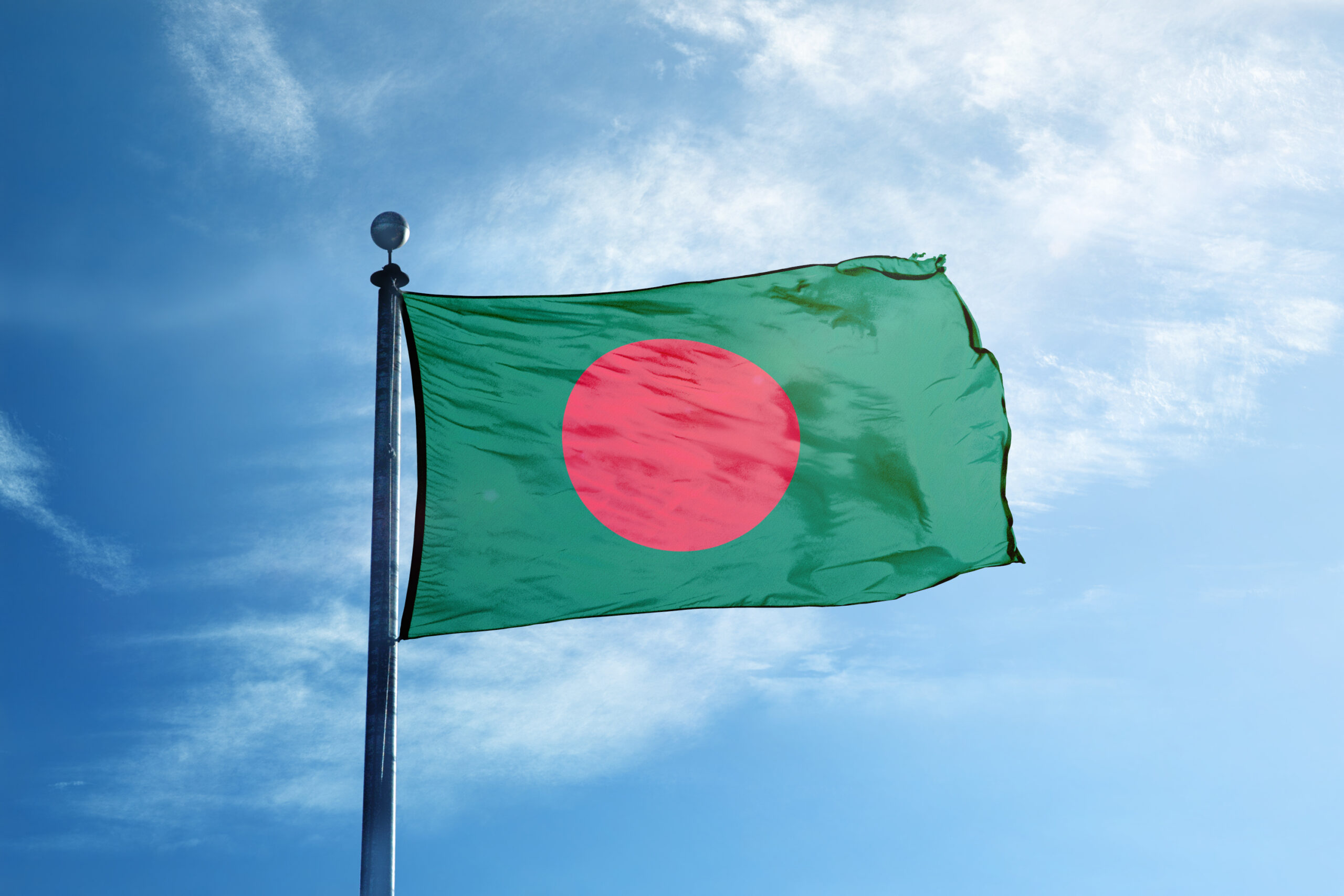
Statement
Amsterdam, 08 August 2024:
In view of the complex political situation in Bangladesh, the International Accord makes the following statement in solidarity with the people of Bangladesh.
The International Accord is deeply concerned about the breakdown in law and order and the ensuing violence in Bangladesh and its impact on the two million workers in Accord-covered factories and our partners in the RMG industry.
It is not possible at this stage to assess the impact current events will have on the RMG industry given the rapidly changing situation. In these uncertain times, the International Accord calls on all signatories of the Bangladesh Safety Agreement[1] to stand by their Bangladeshi industry partners with patience in order to support the economic future of the country.
We urge all signatories to:
- Uphold the letter and the spirit of the commitments made to maintain a long-term sourcing relationship with Bangladesh.
- Actively engage with your suppliers to work together and address challenges related to production targets, order deliveries and the safety and health of workers.
- Continue supporting the RMG Sustainability Council (RSC) throughout this challenging period.
In addition, we have also learnt of, as yet unverified, reports of vandalism and fires at some RMG factories in Bangladesh. Any safety incidents at covered factories will be investigated by the RSC in accordance with their operating procedures, to the extent possible under the circumstances.
The International Accord will work to the best of its ability, together with colleagues from the RSC, Accord brands, trade unions, witness signatories and industry, to provide ongoing support and ensure that commitments made on safety and health protections are upheld. These include upholding the right to refuse unsafe work, maintaining regular income during any period a factory is closed for safety reasons, and avoiding excessive working hours to make up for production delays.
The International Accord hopes that Bangladesh quickly returns to a state of political and social stability and that we can continue our collective journey towards a safe and sustainable RMG industry in Bangladesh.
Our thoughts and prayers are with the people of Bangladesh.
[1] The Bangladesh Safety Agreement is a Country-Specific Safety Program that is an addendum to the International Accord framework agreement and has been signed by 201 garment brands and retailers.
END
For more information, contact:
- media@internationalaccord.org
- Mini Dixit, Communications Advisor: mini.dixit@internationalaccord.org
Related updates
May 28, 2025
The International Accord’s All Signatory Meeting was dedicated to insights on the progress and operations of the Accord’s country program in Bangladesh and Pakistan, alongside exploring opportunities to expand the Accord’s scope and impact.
March 10, 2025
This briefing provides updates on the number of signatory brands and covered factories, the rollout of Workplace Programs, and recent events organised by the Pakistan Accord team.
February 19, 2025
The Pakistan Accord team recently organised a series of capacity building workshops for government officials in the Sindh and Punjab provinces.
May 28, 2025
The International Accord’s All Signatory Meeting was dedicated to insights on the progress and operations of the Accord’s country program in Bangladesh and Pakistan, alongside exploring opportunities to expand the Accord’s scope and impact.
February 19, 2025
The Pakistan Accord team recently organised a series of capacity building workshops for government officials in the Sindh and Punjab provinces.
November 28, 2024
On 26 and 27 November 2024 the Pakistan Accord conducted its inaugural safety training meeting in Pakistan. The meeting was attended by all employees of the factory.



